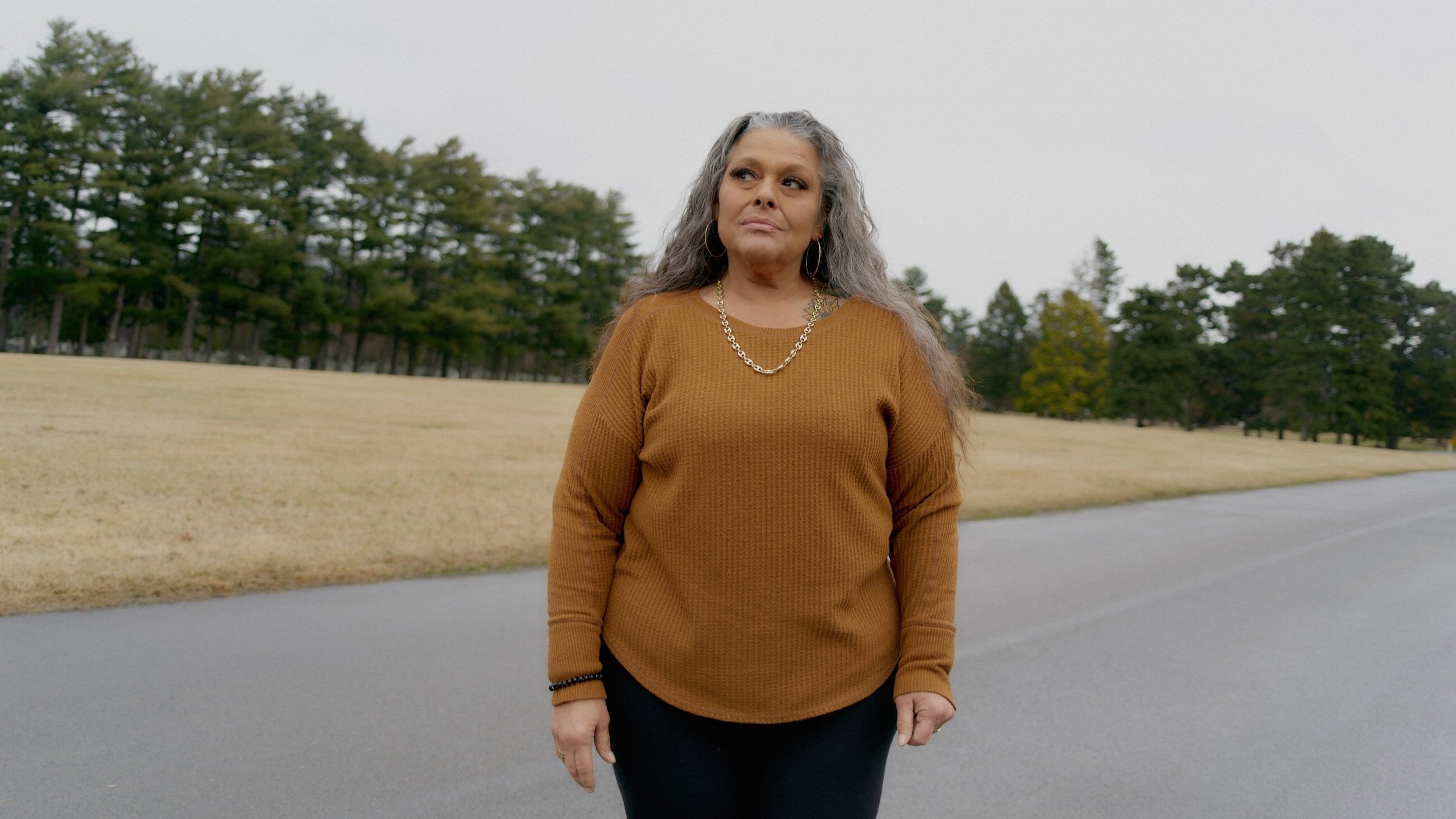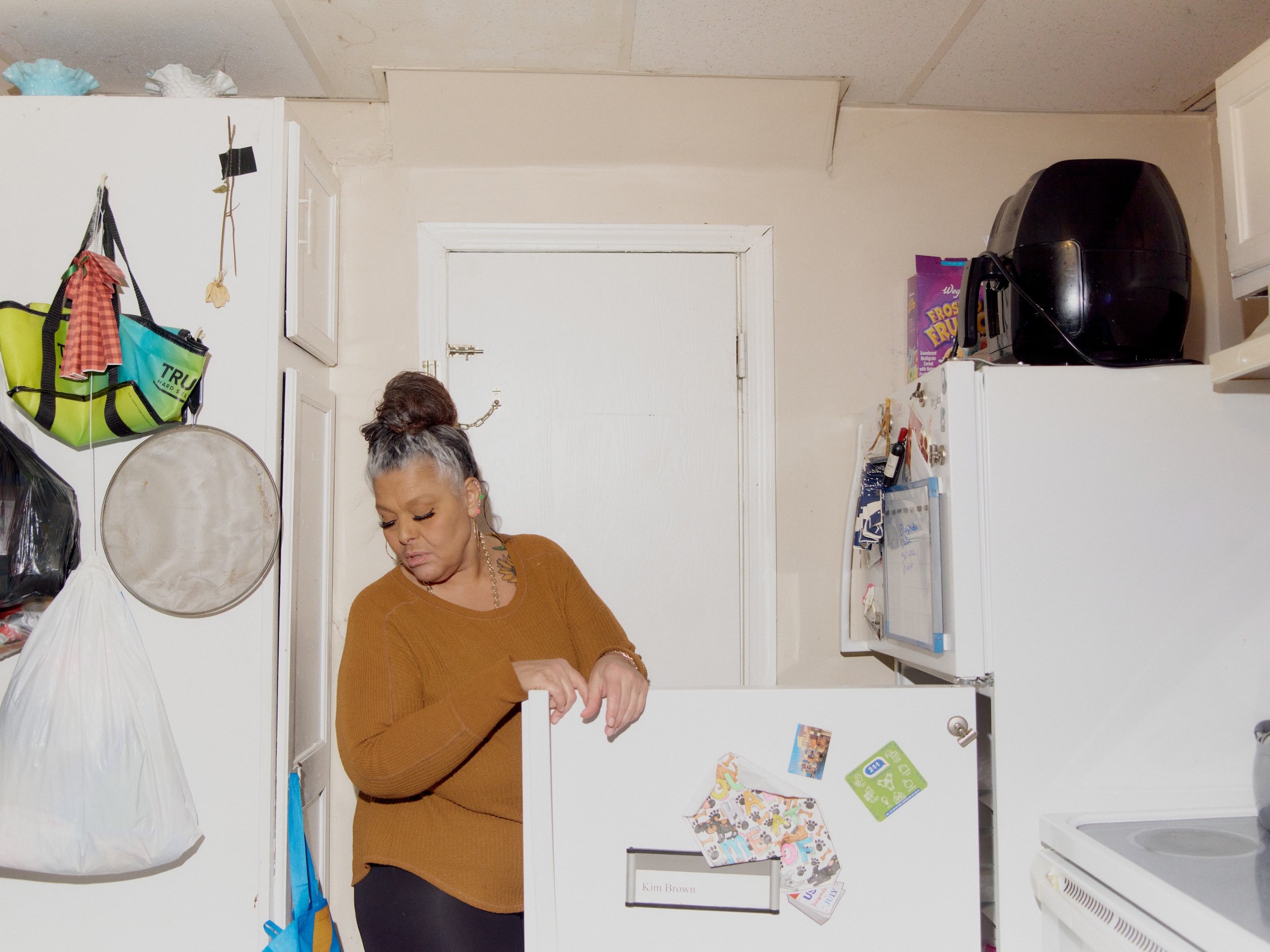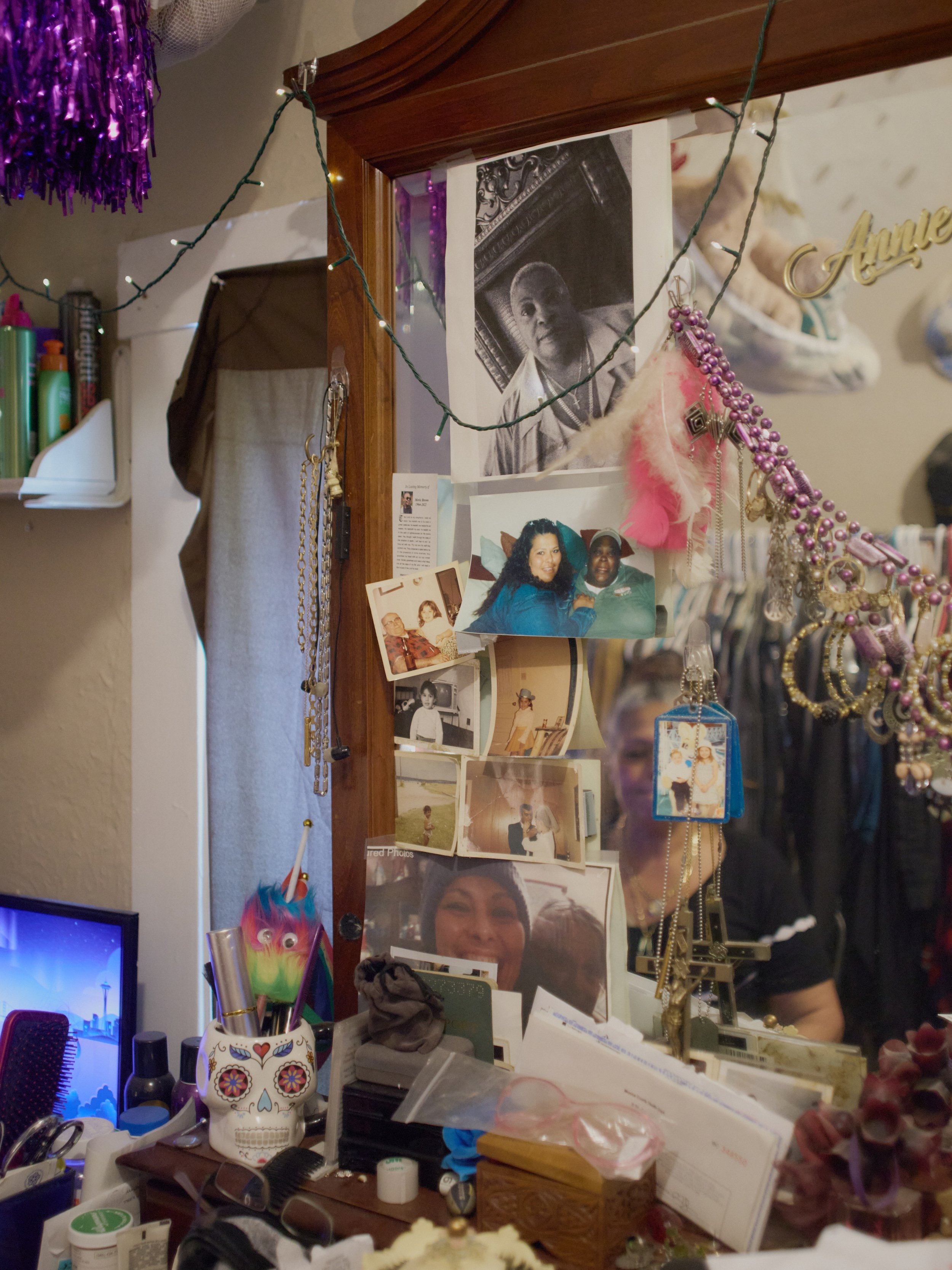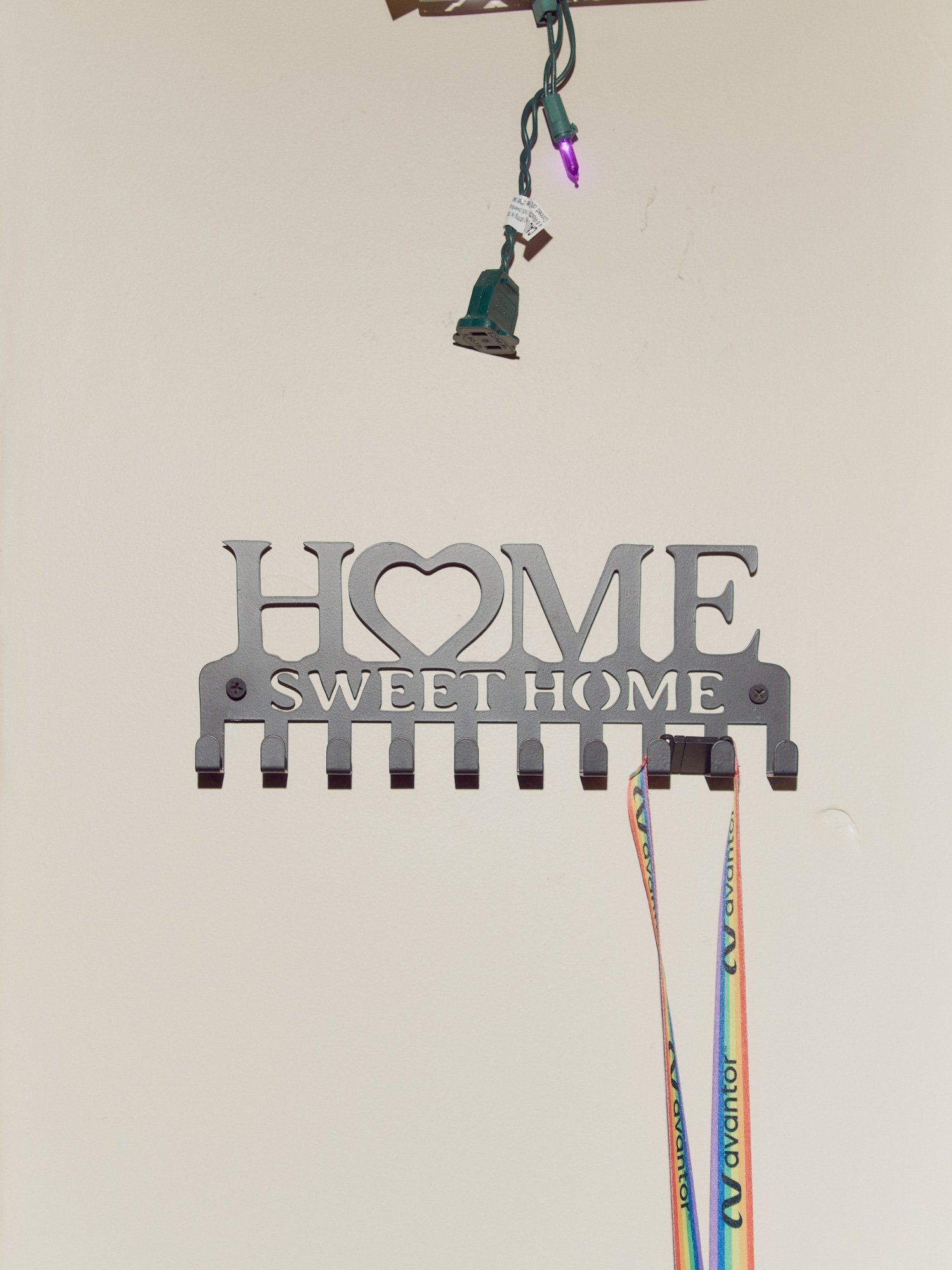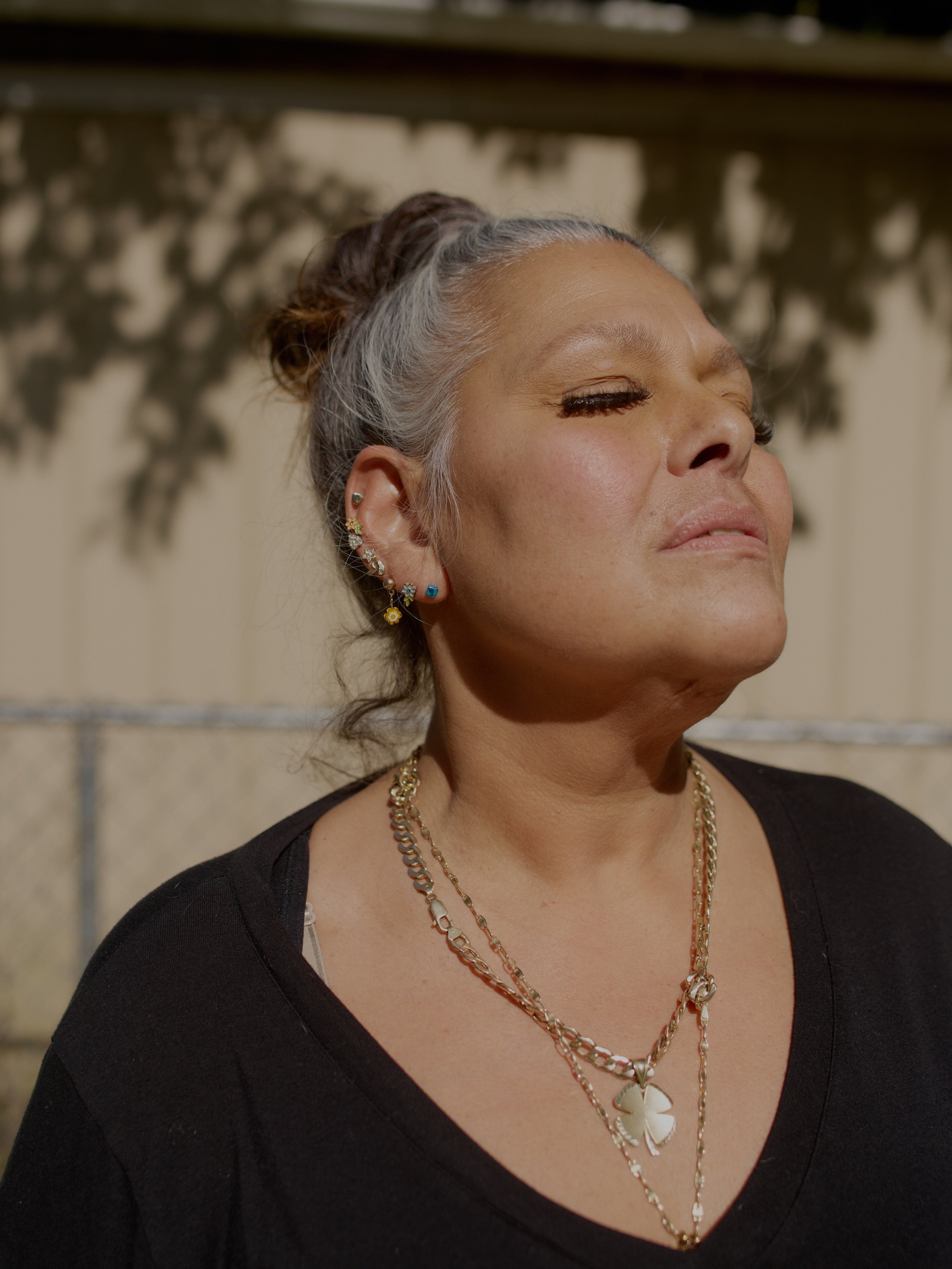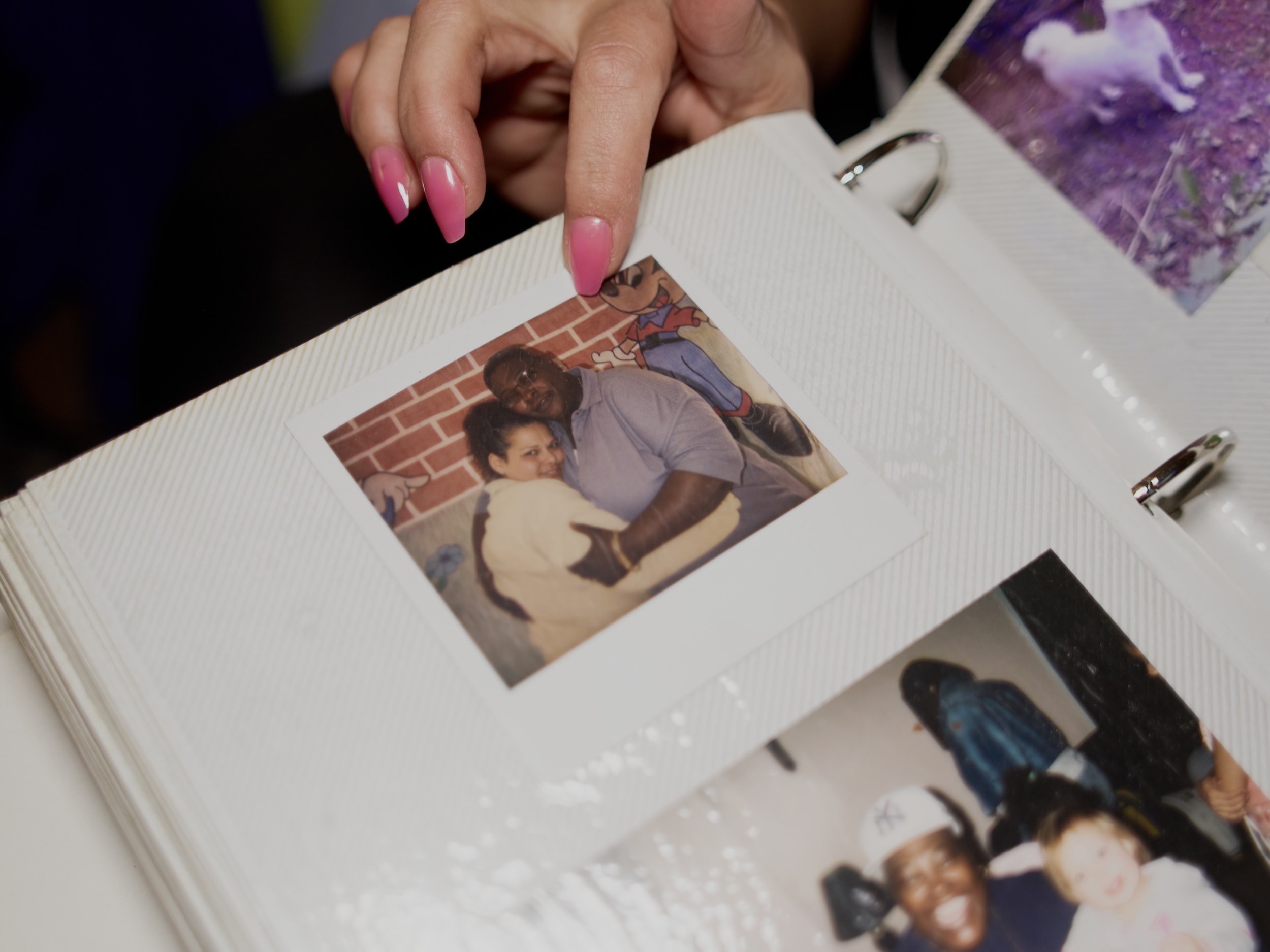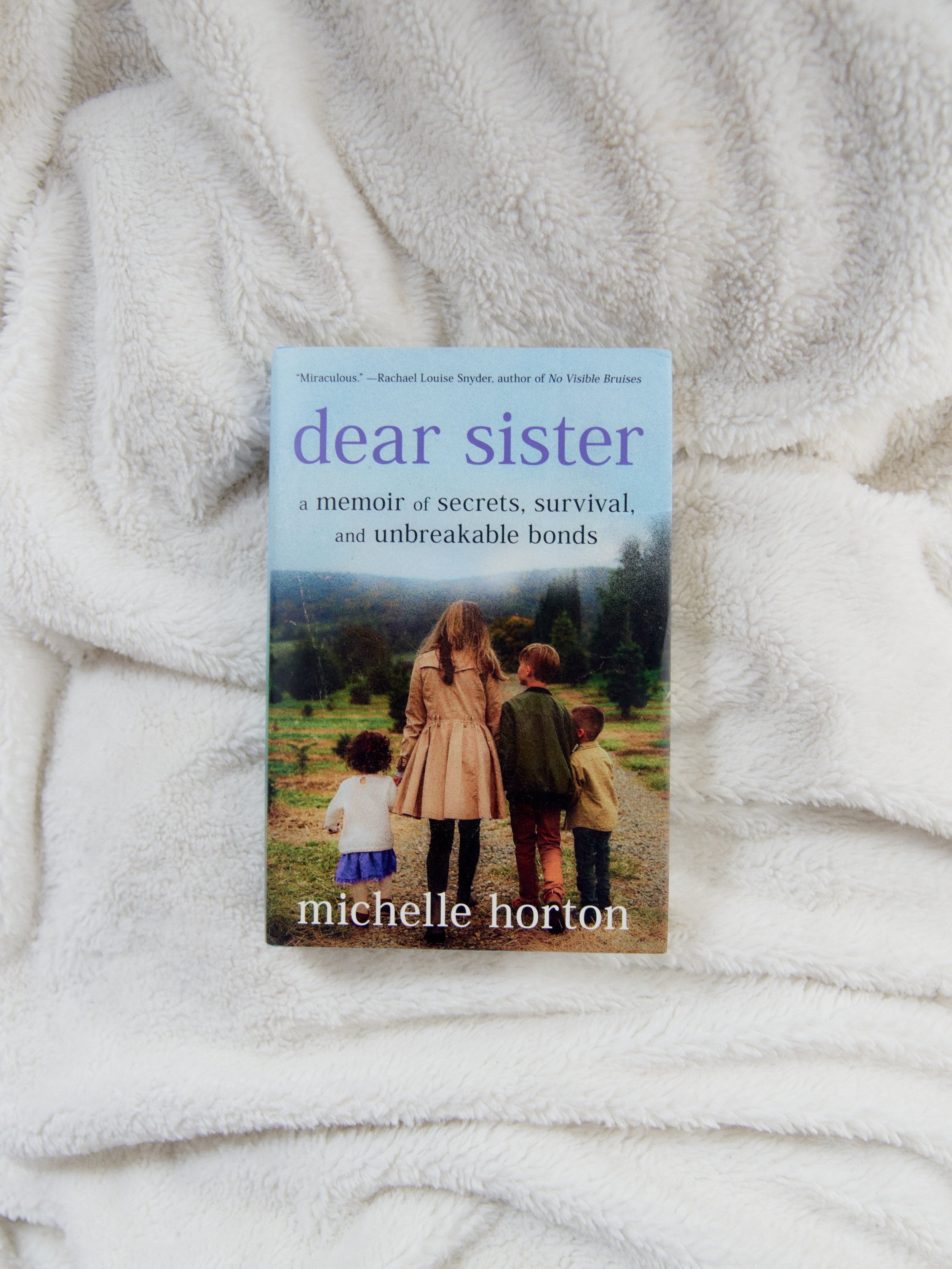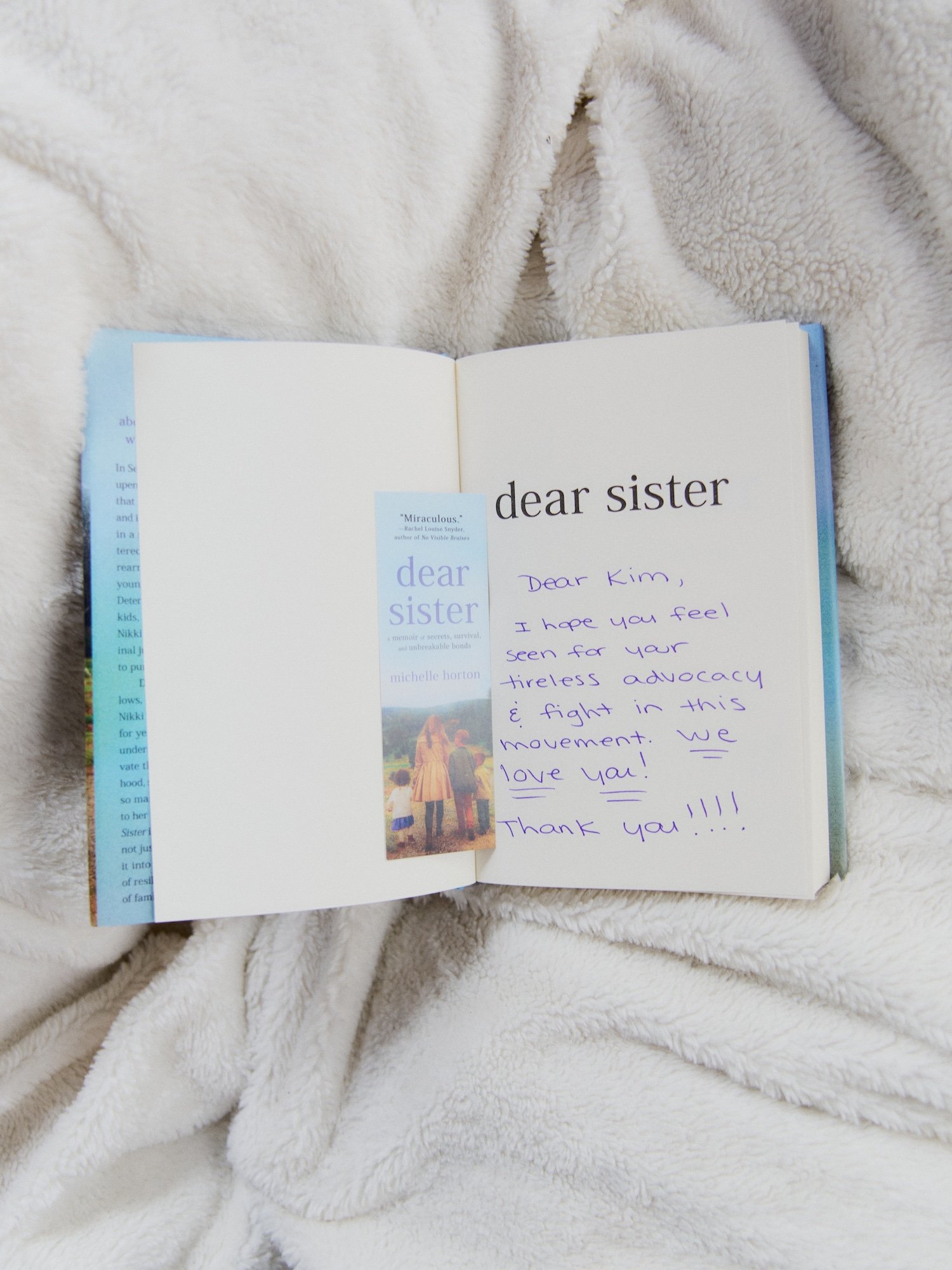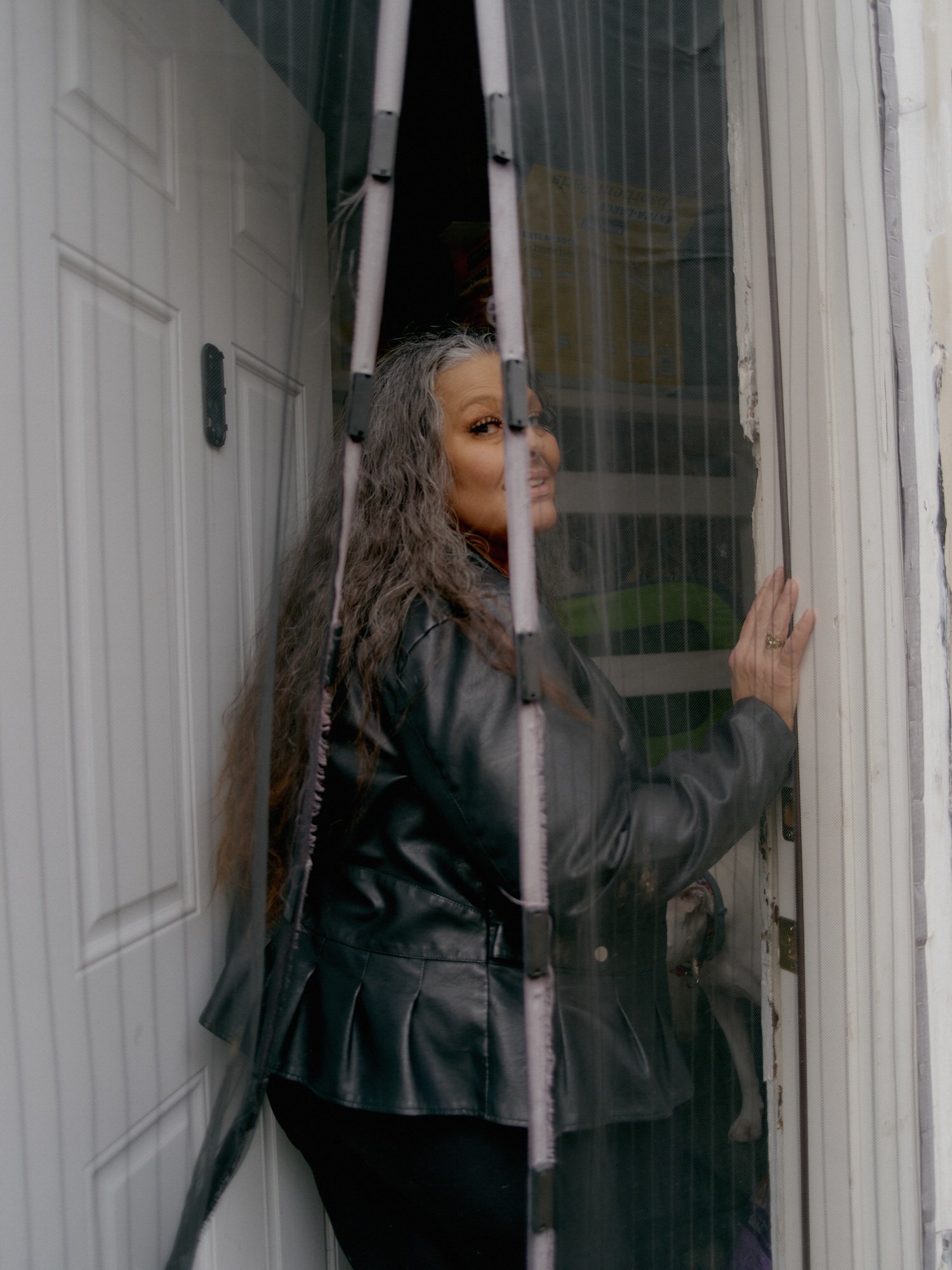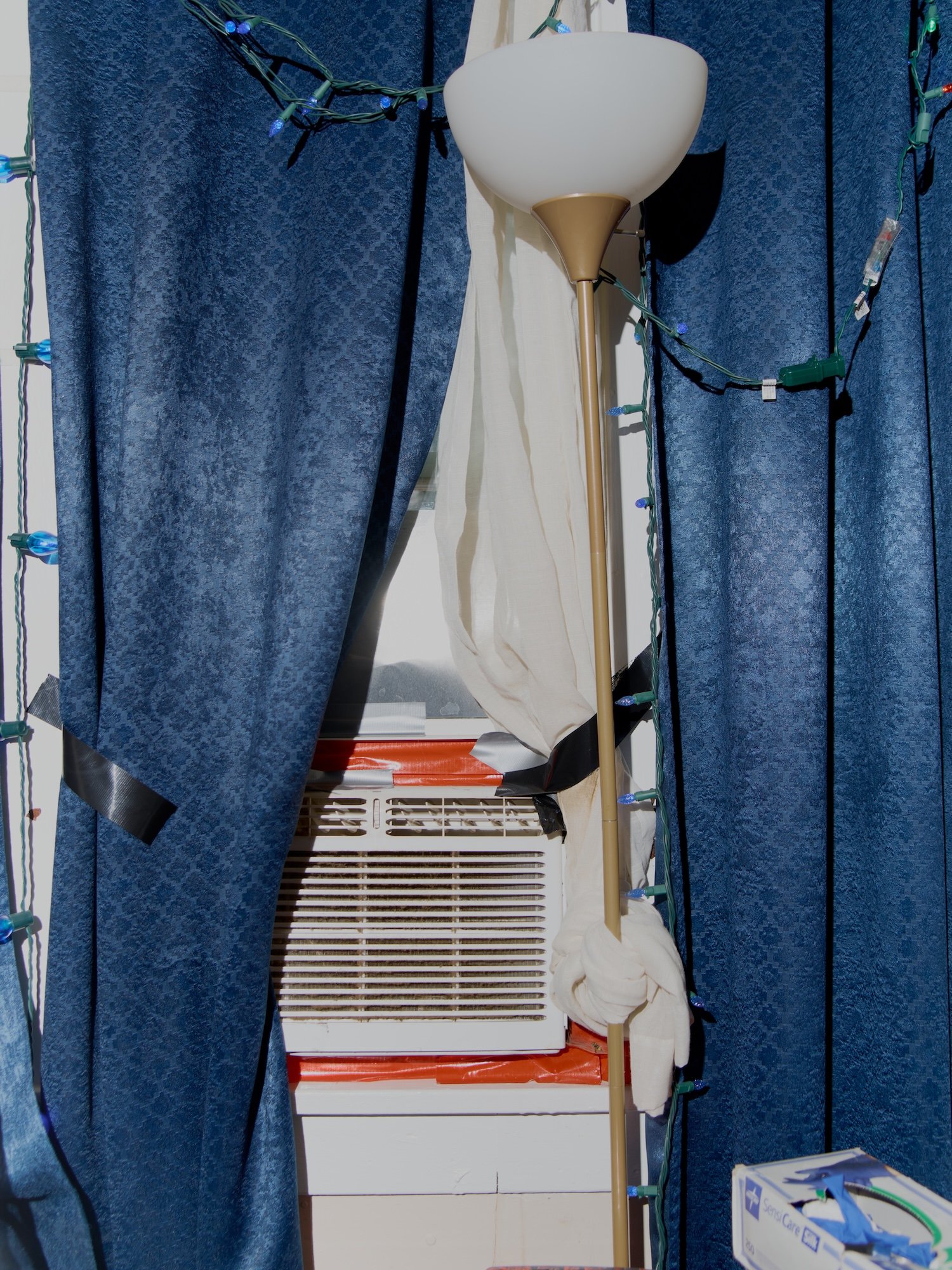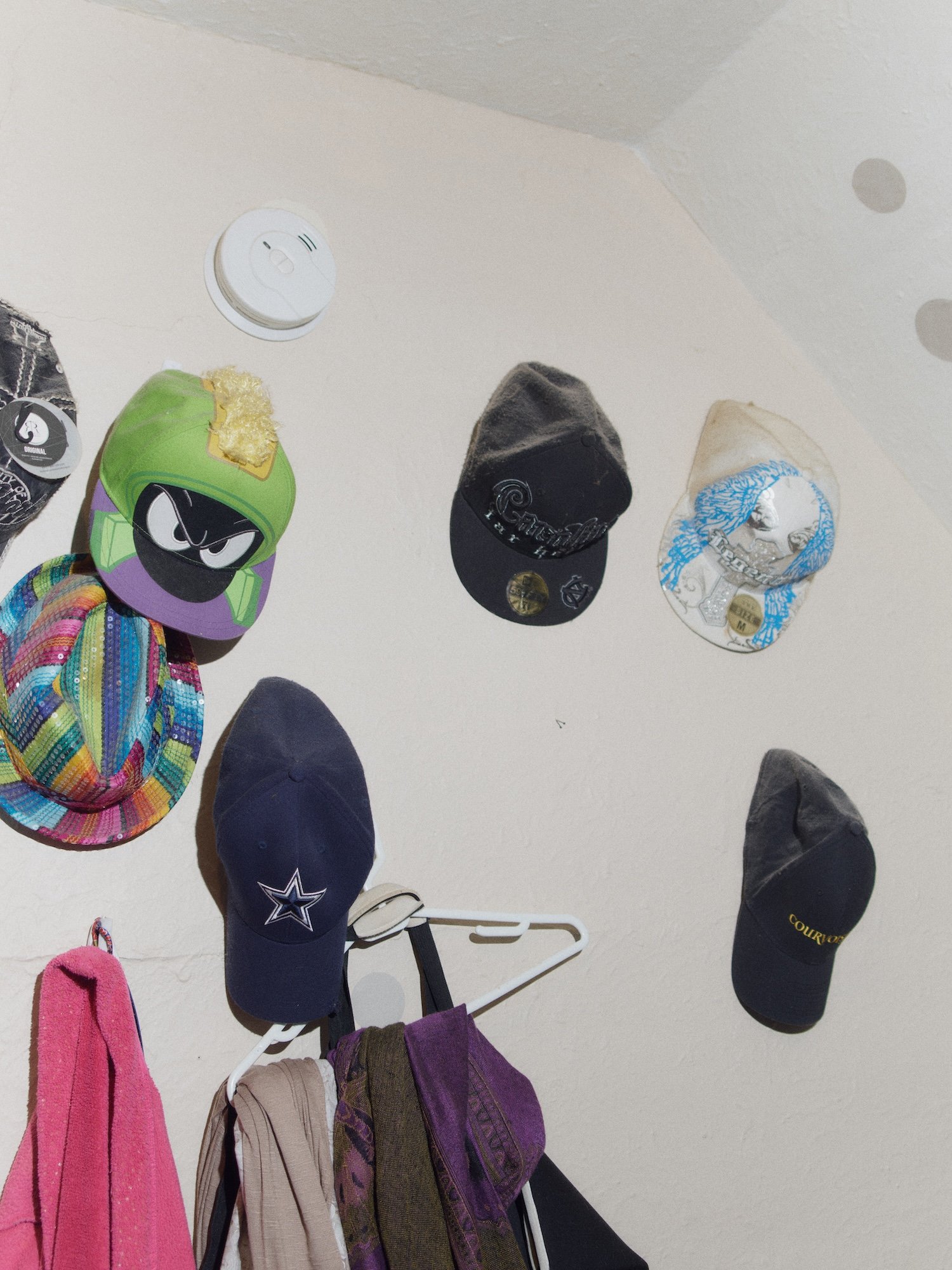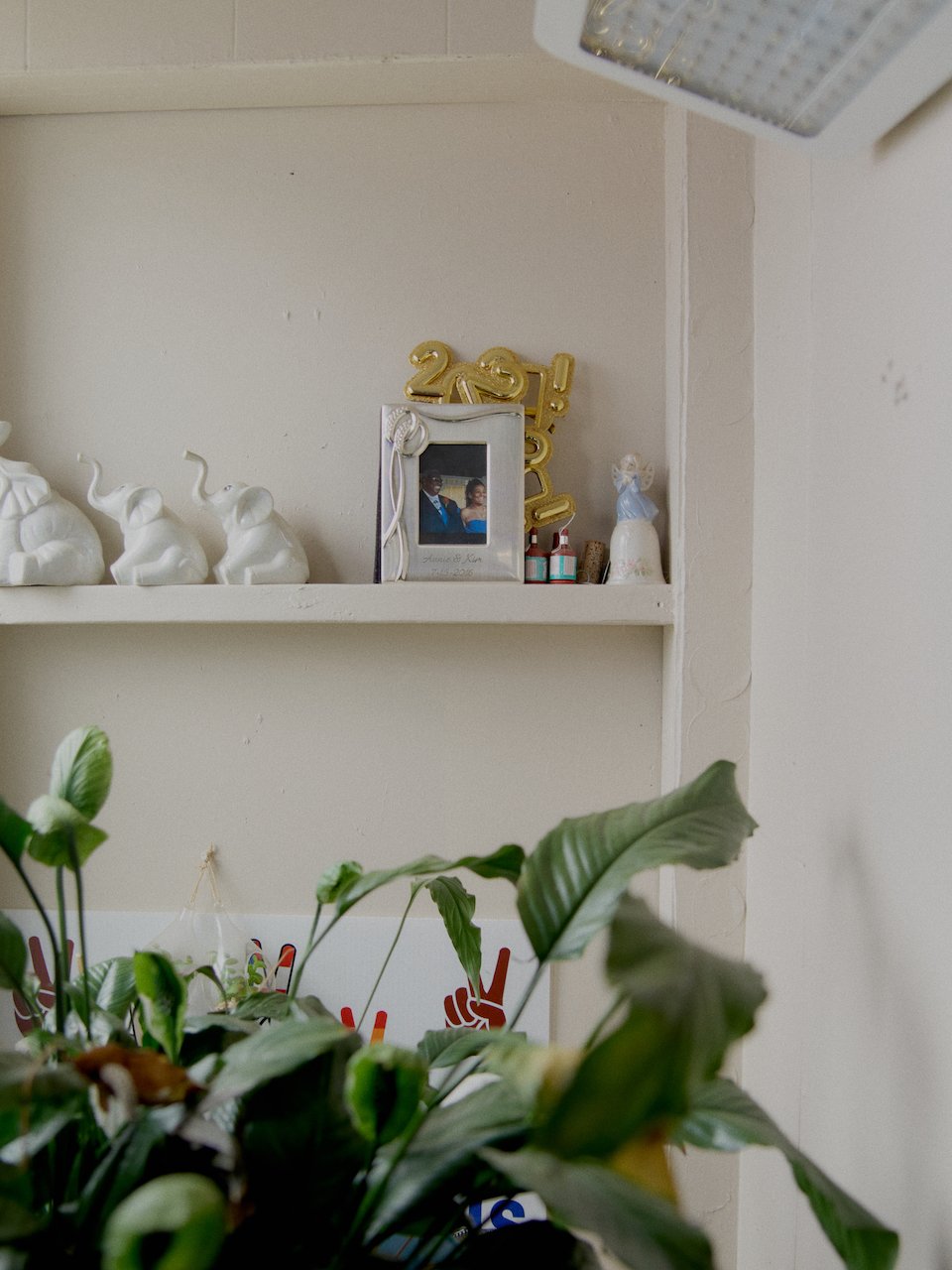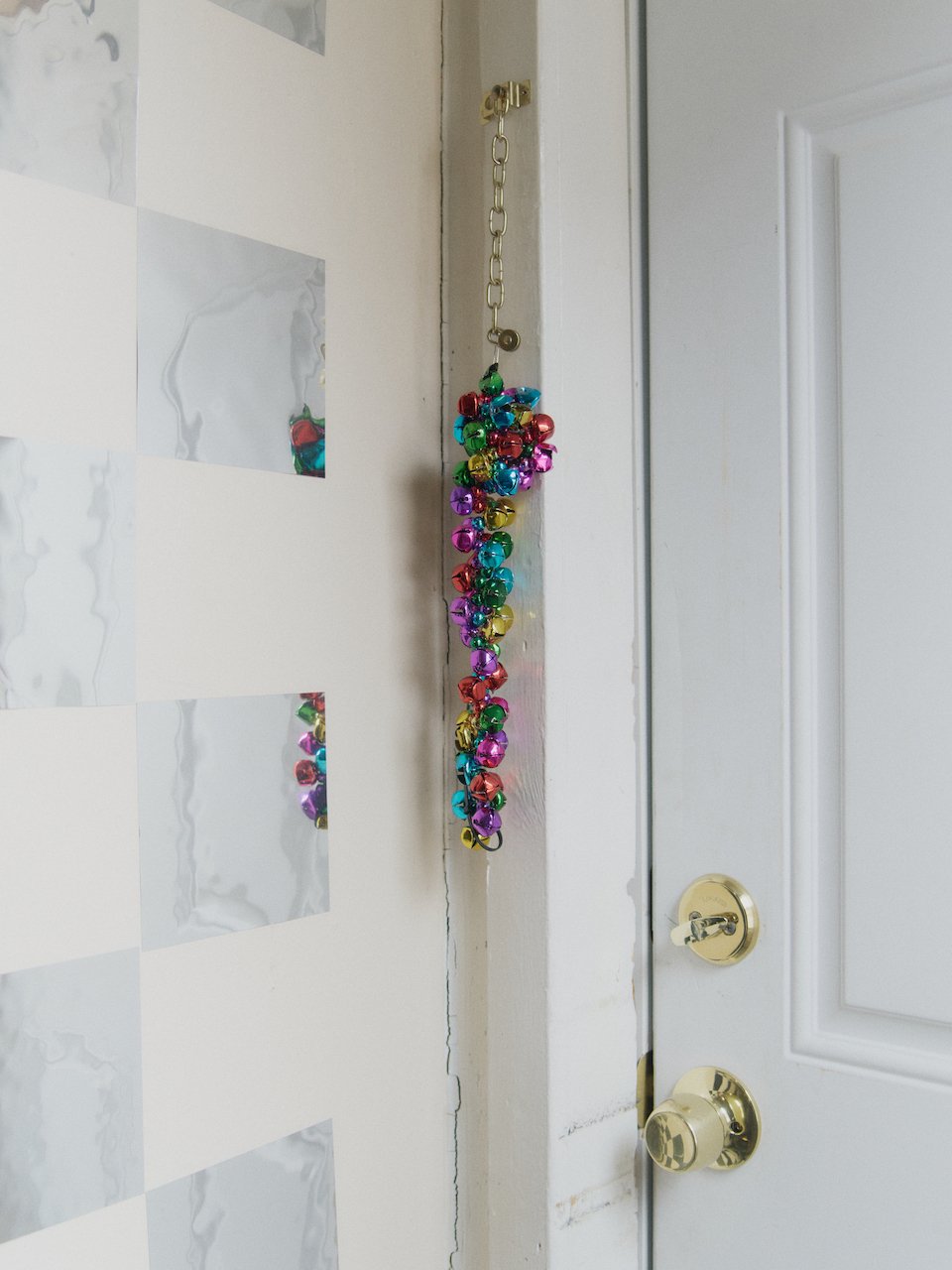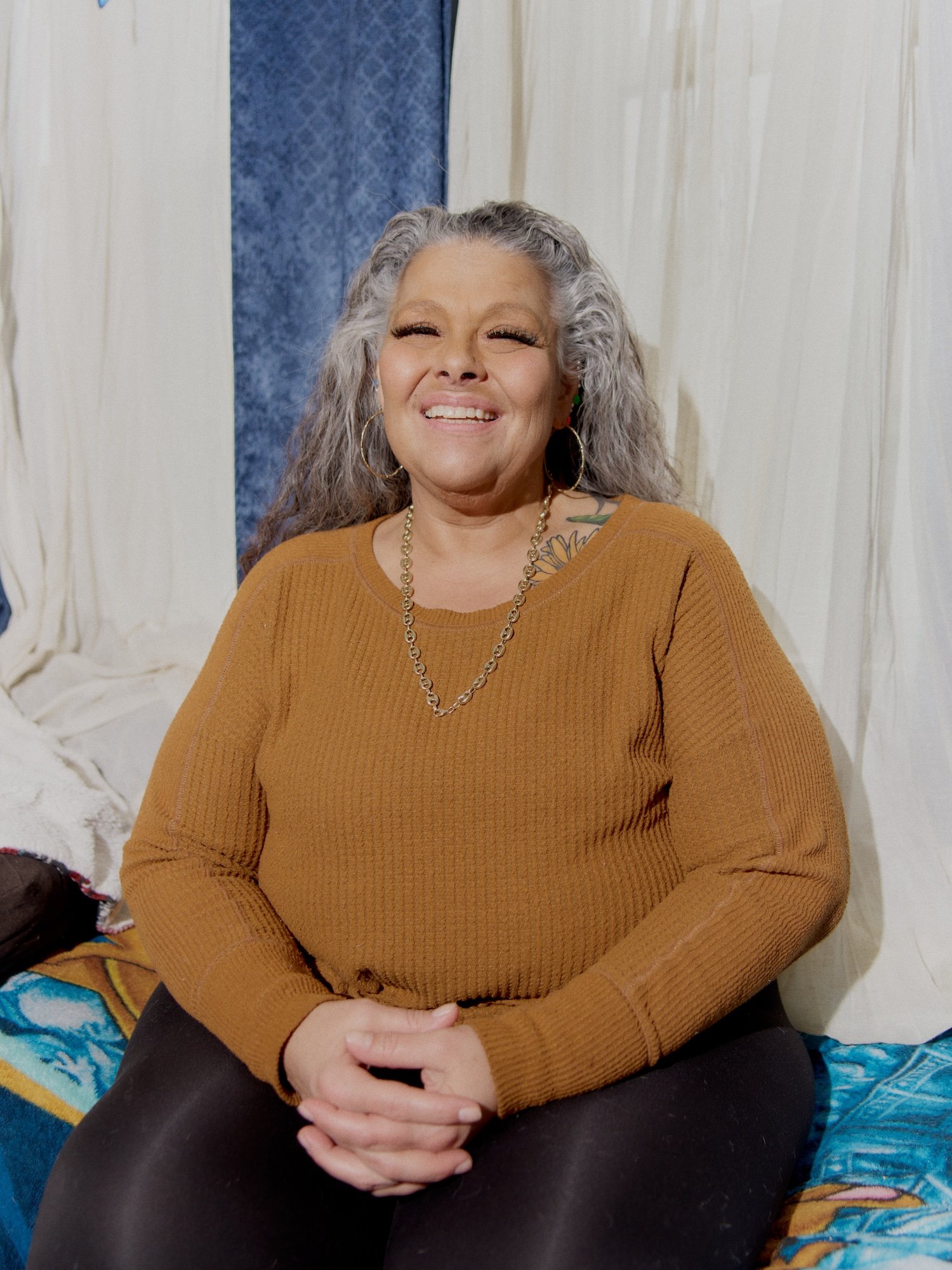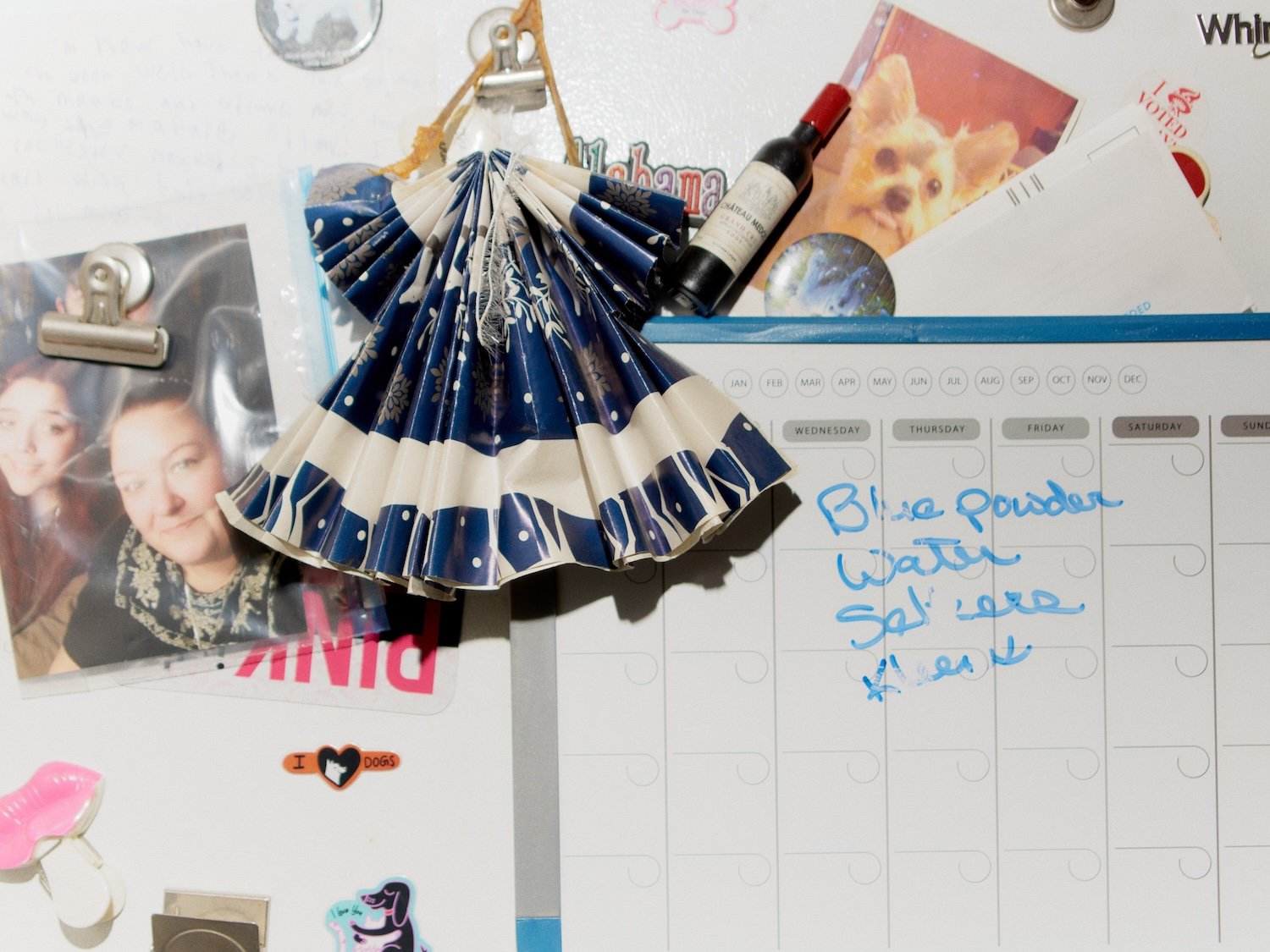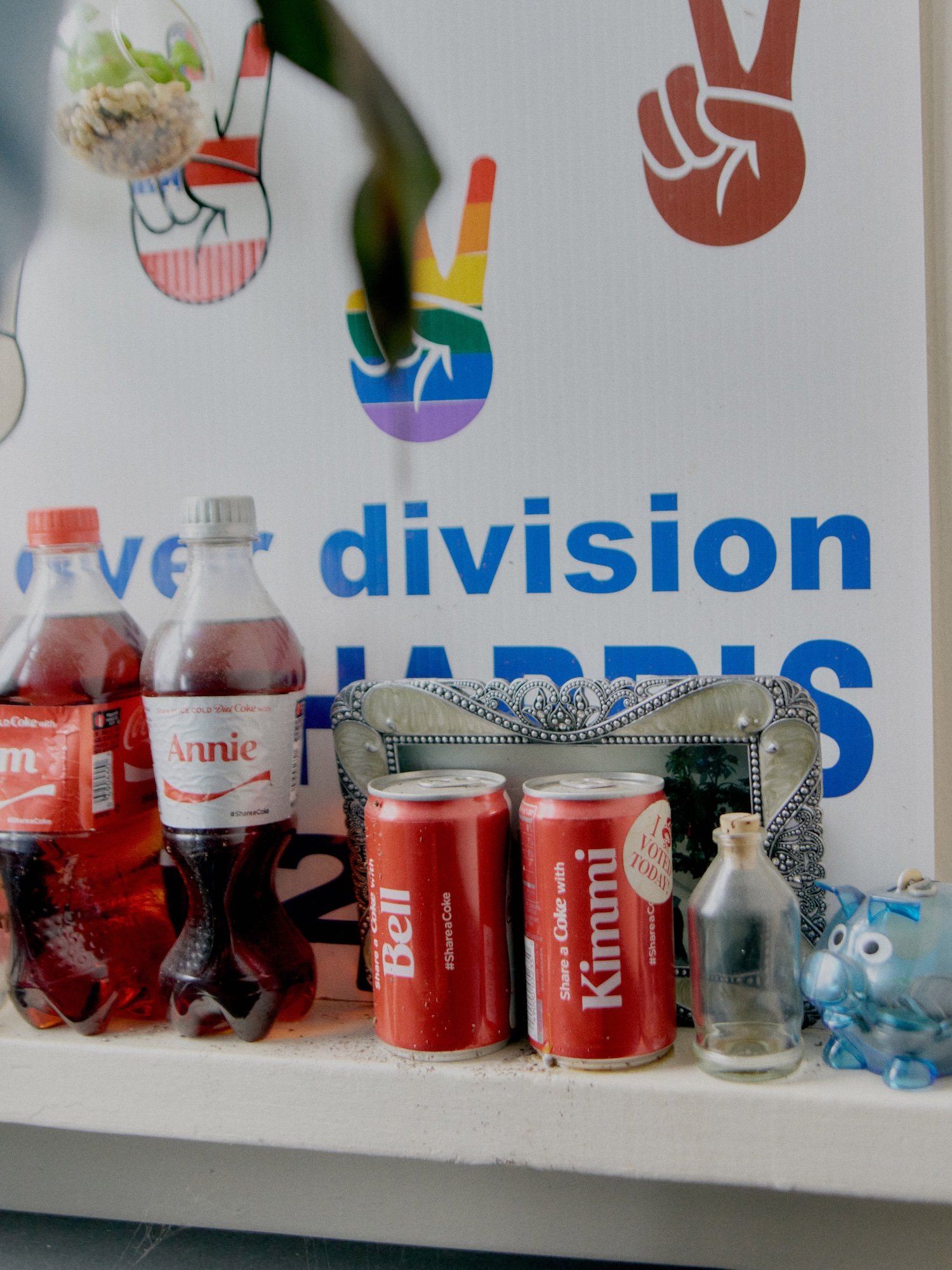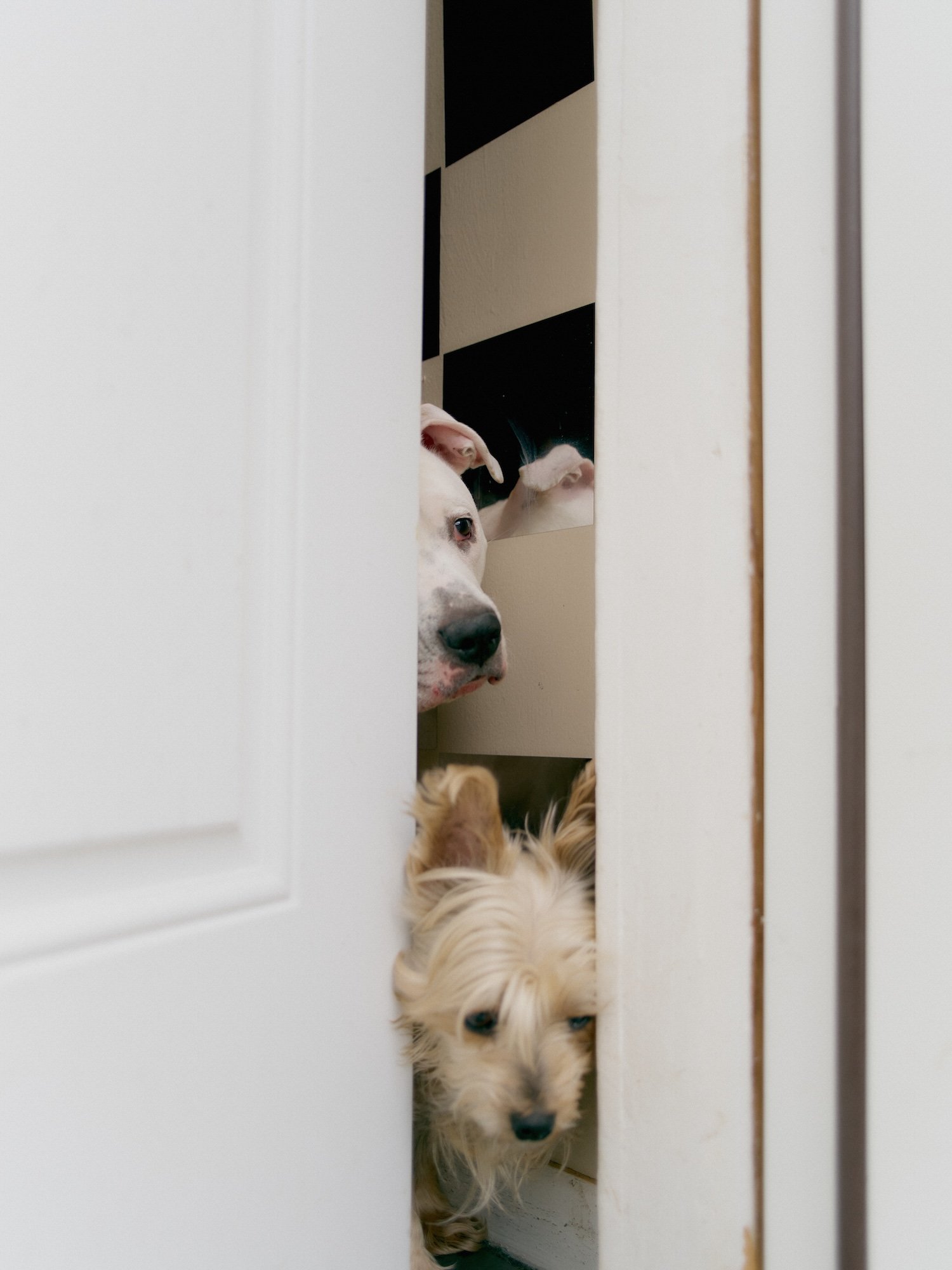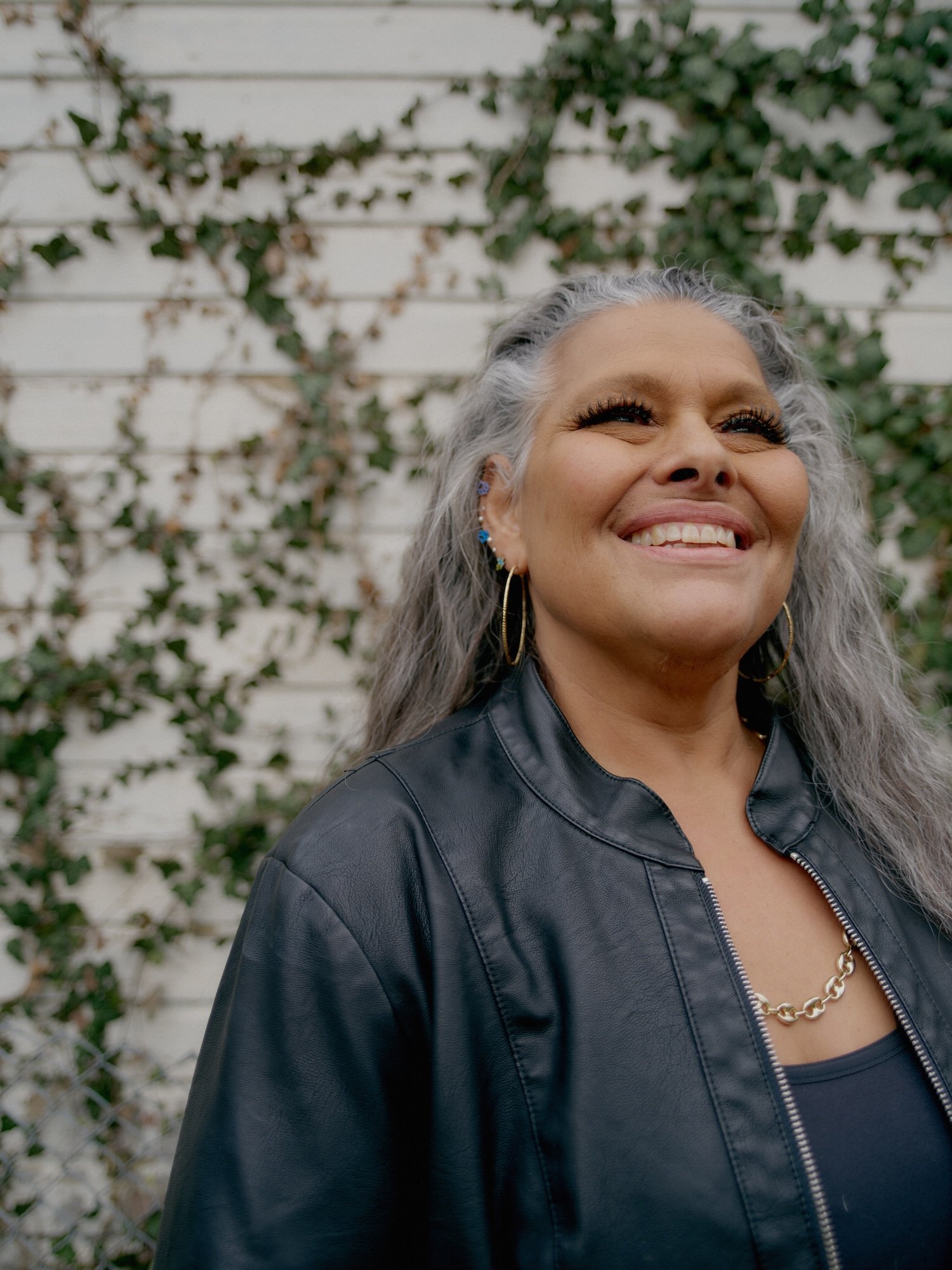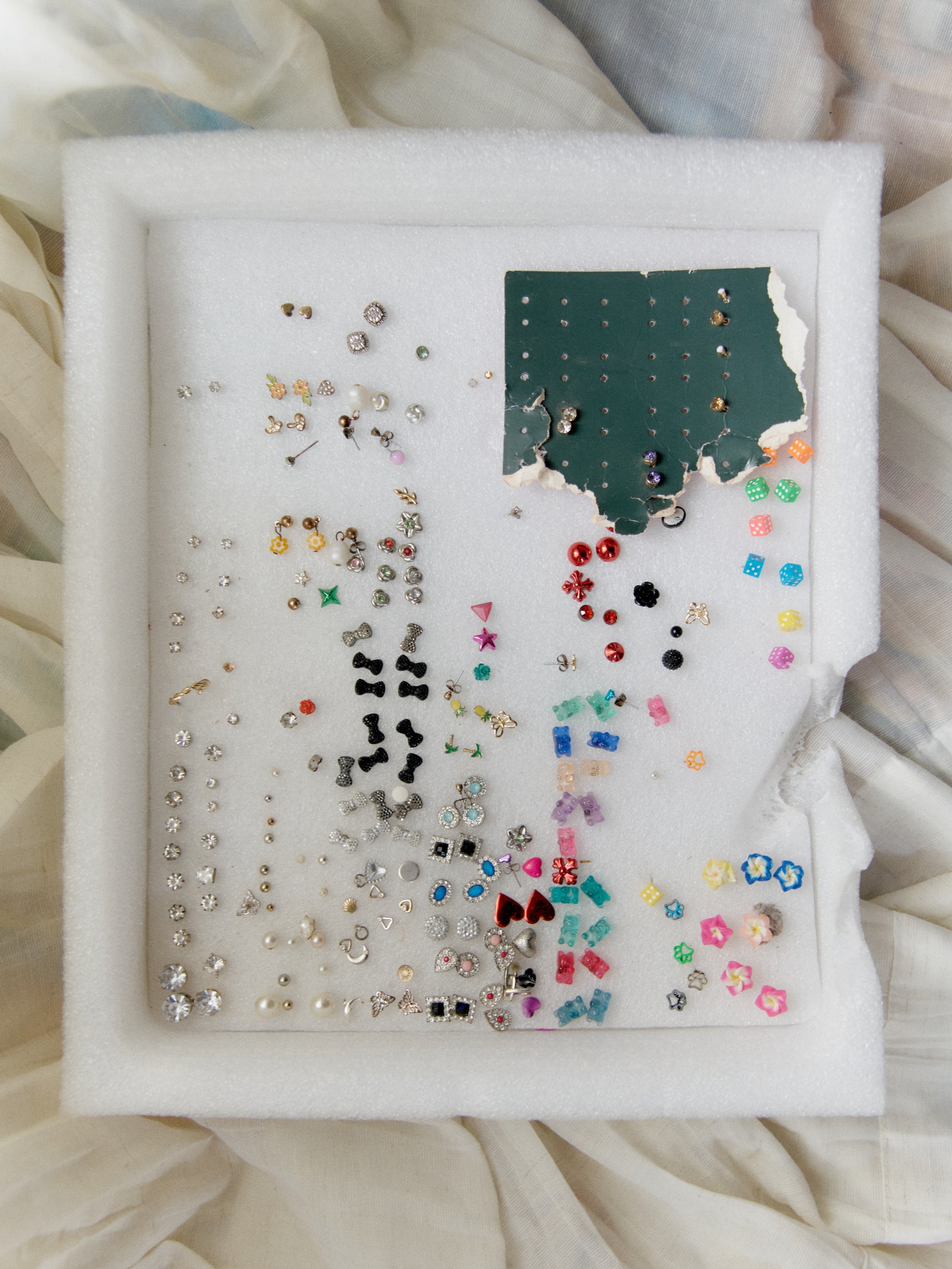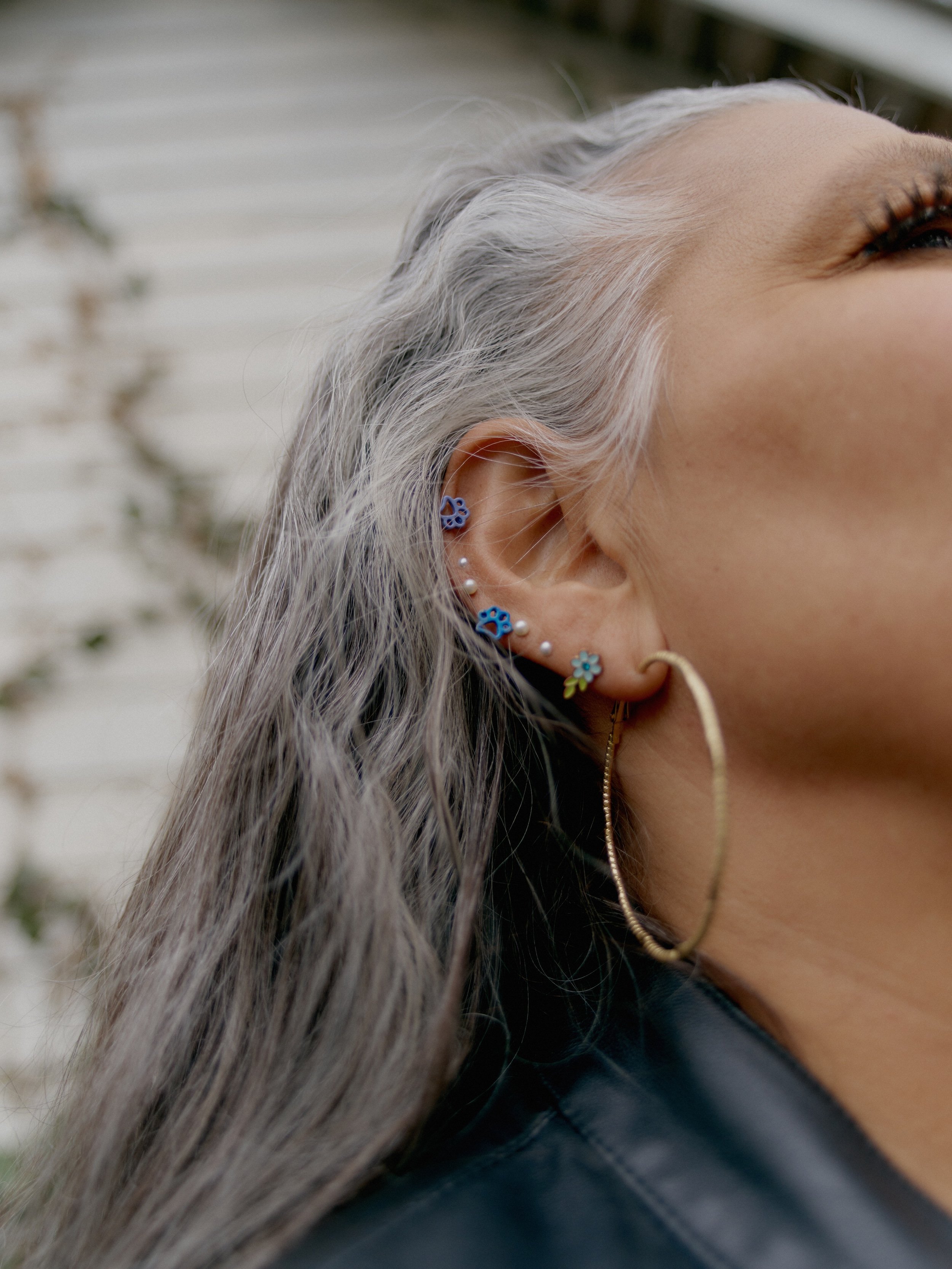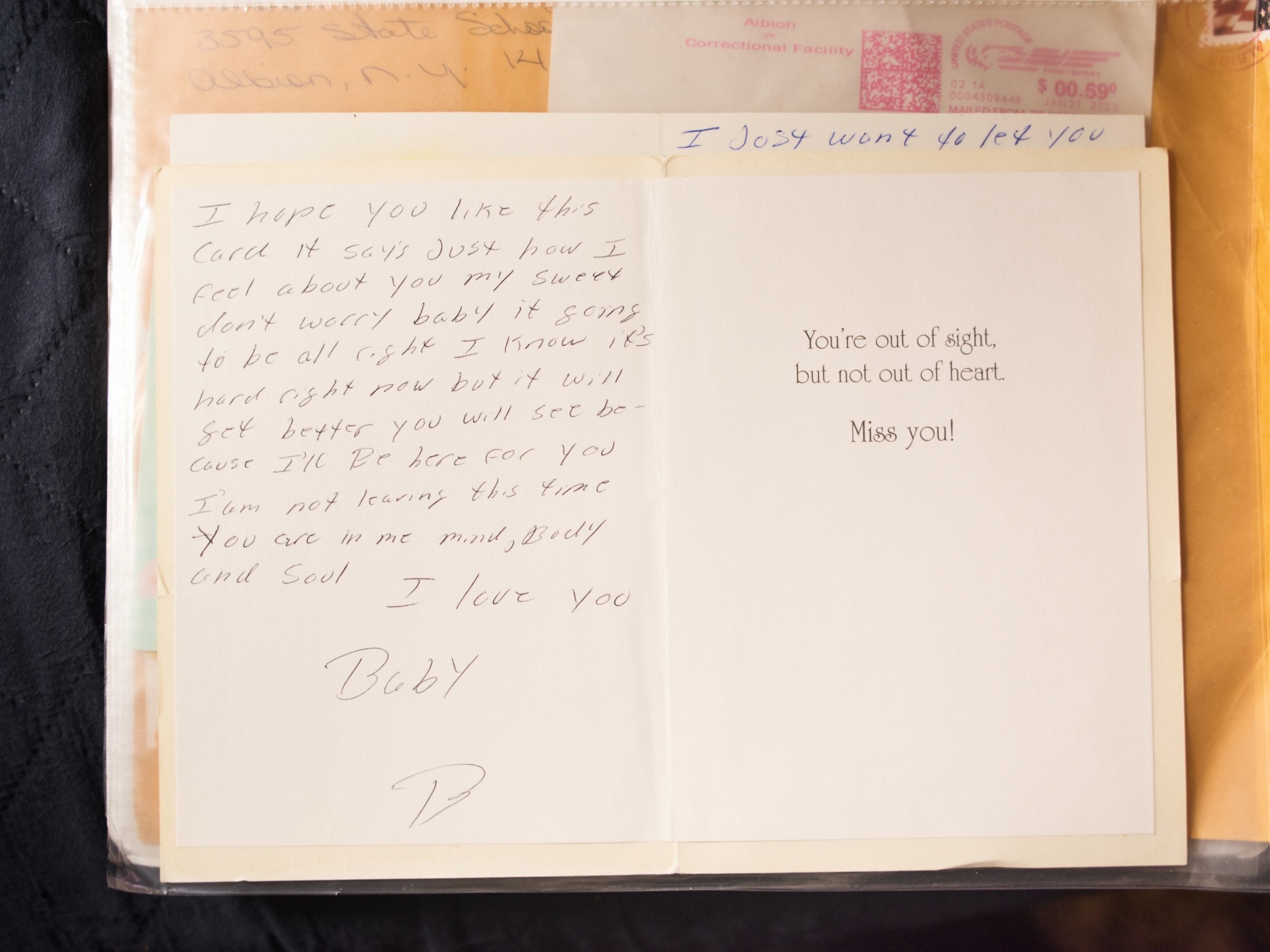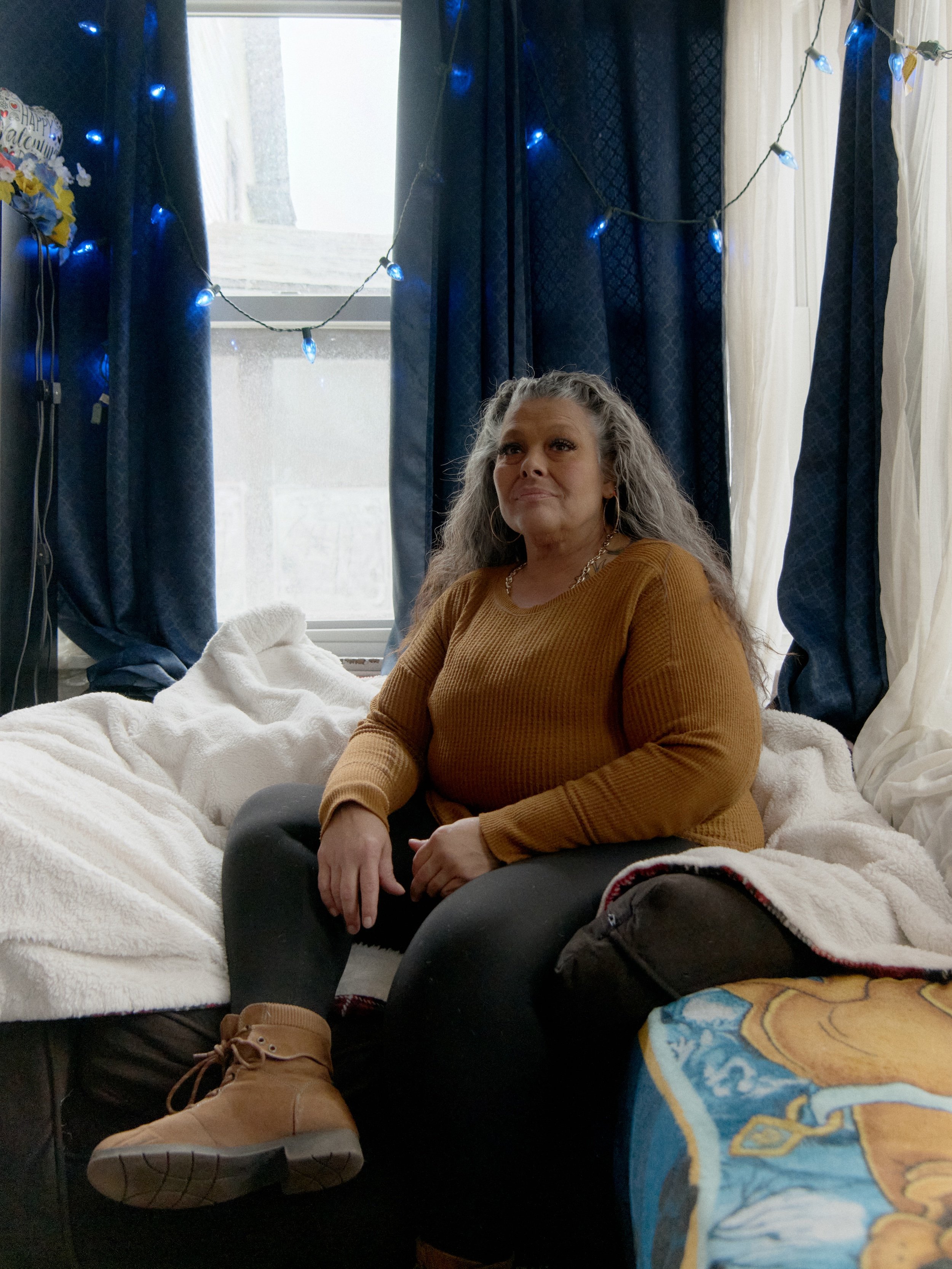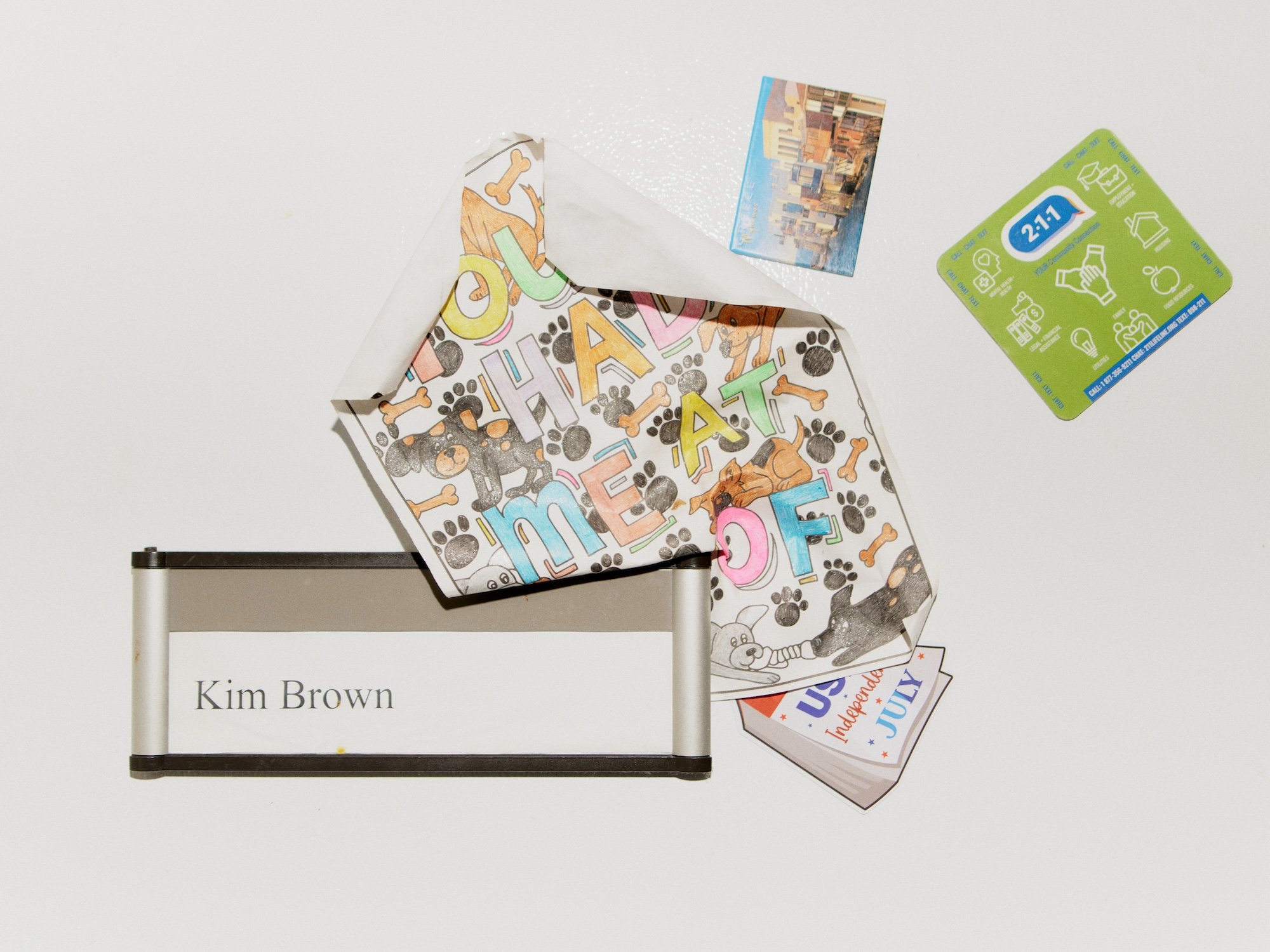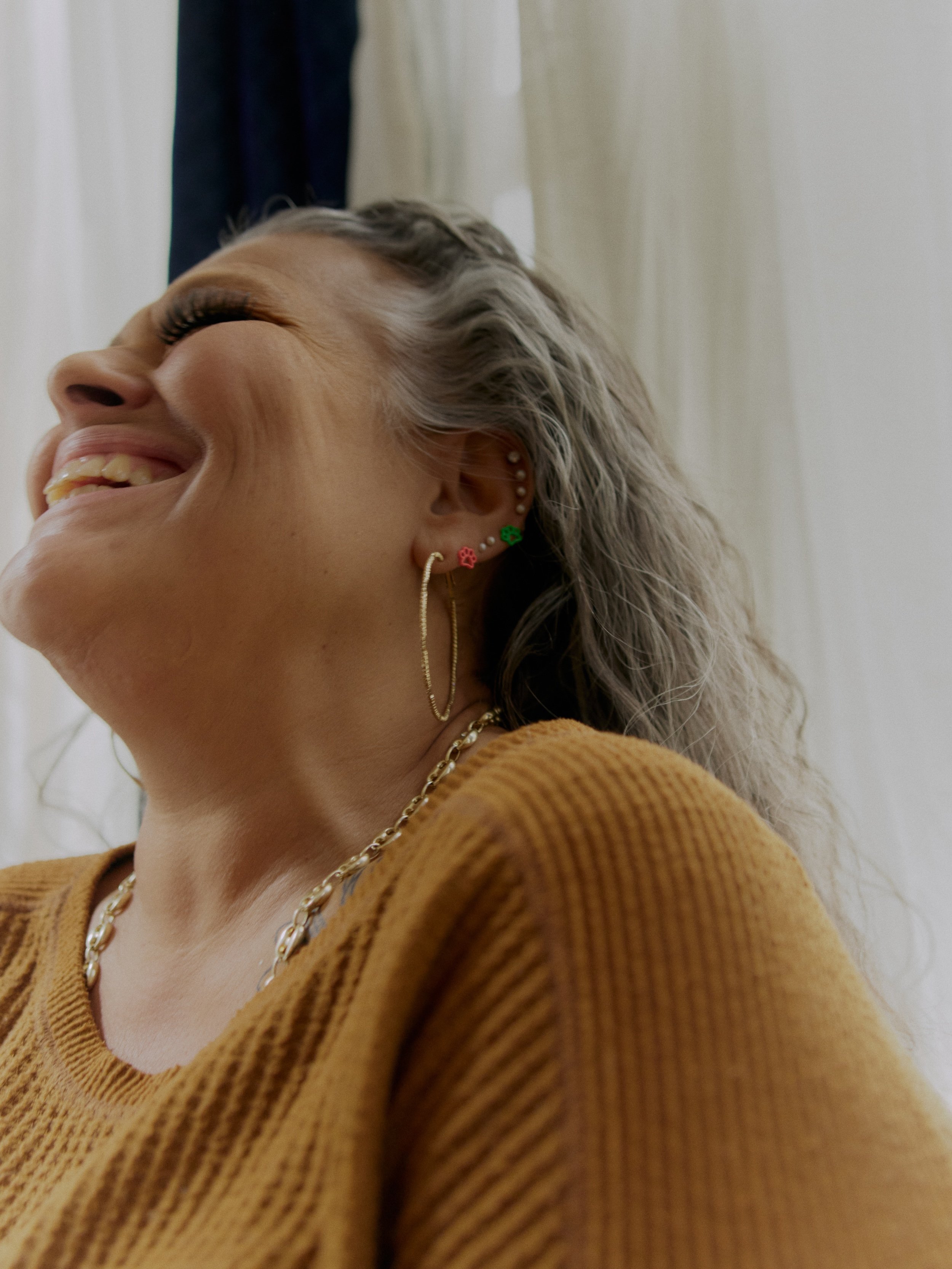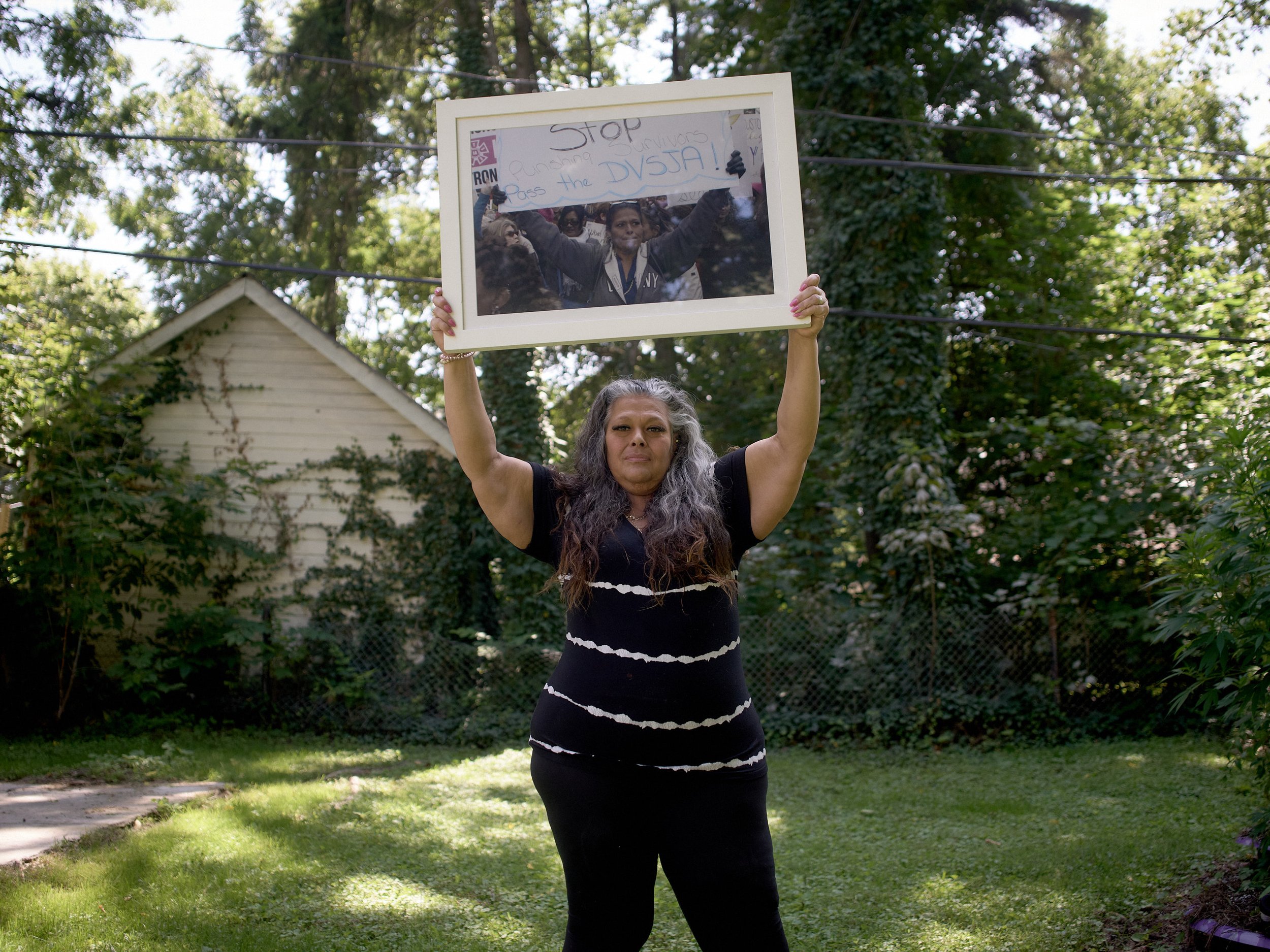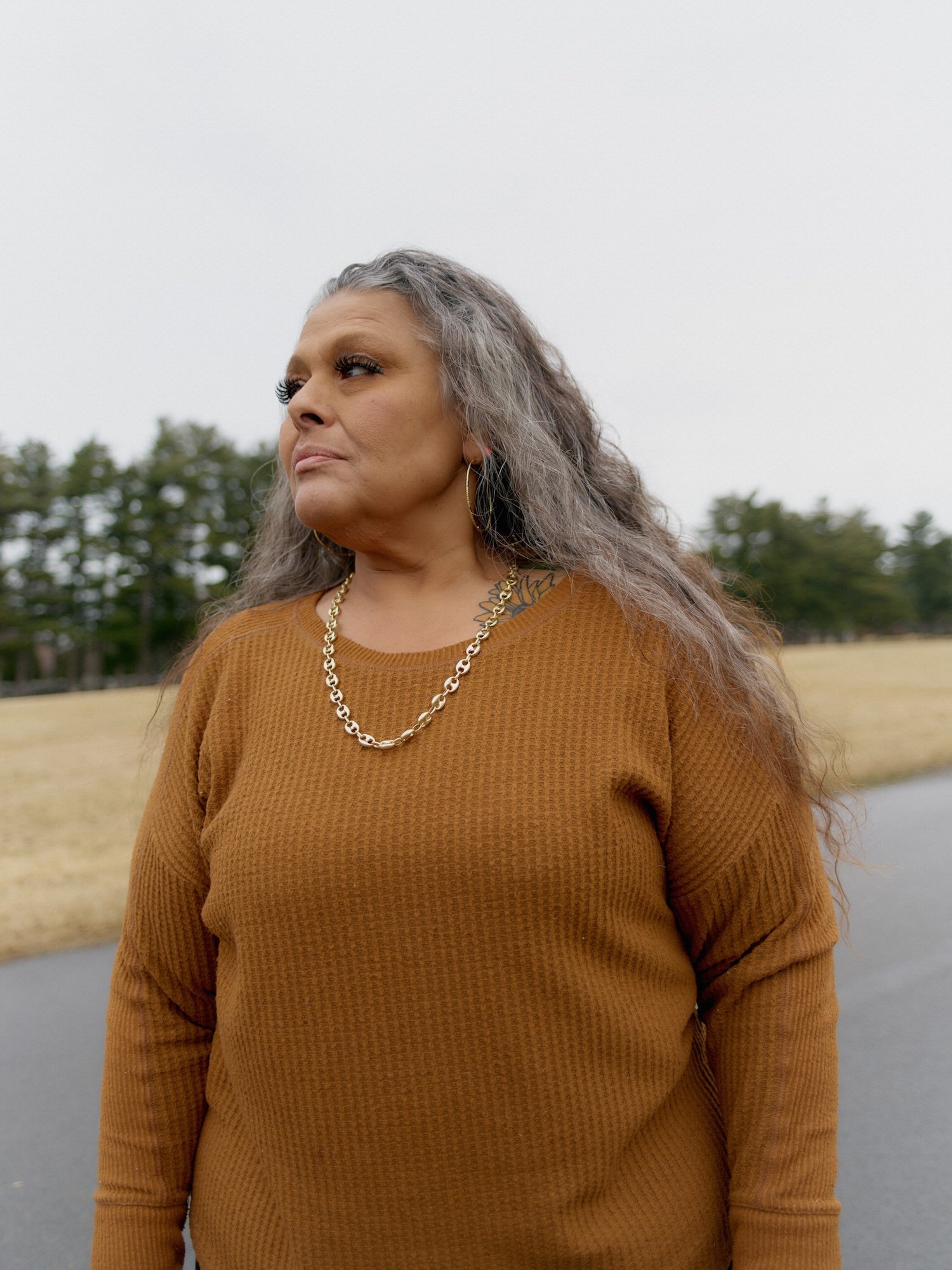This interview contains content that may be distressing, including mentions of domestic violence, gun violence, and suicide. Please be mindful of this before reading on, and reach out to us if you have any questions. If you or someone you know is experiencing thoughts of suicide, please consider calling or texting the National Suicide and Crisis Lifeline at 988. If you or someone you know is experiencing domestic violence, please consider calling the National Domestic Violence Hotline at 1-800-799-7233.
This feature was made in collaboration with Everything Is Stories, a long-form podcast focused on unconventional stories told by the people who lived them - stories with urgency and resistance, stories with payoff. EIS believes that characters who are on the fringe usually have the best stories because they are constantly resisting something. The tension is always there. These voices have told their greatest moments where peace is far and death is close. Sometimes these stories explore the philosophy of outsiders - but most importantly, they examine what it is to be human. Take a listen. You may find a definition of reality's highs and lows.
Kim Dadou Brown grew up an Army brat, moving around frequently as a child, but Rochester, New York always felt like home. Now that she’s back after seventeen years in prison, Kim, a survivor of domestic violence and advocate for survivors like her, can be found spending time with her wife and their beloved dogs, shopping at Wegman’s or Goodwill, speaking to lawmakers in Albany, or traveling the country as an expert speaker on domestic violence and the impact of criminalization. We talked to Kim about hanging out with her cool cousin in high school, finding love in prison, and making a world where survivors of domestic violence are heard.
⌨ kim’s last google search | ♫ listen to kim’s playlist | ♫ Listen to Kim tell her full story on the Everything Is Stories podcast here and stay tuned for part two of her story on April 16th:
on her morning routine
The first thing I do when I get up in the morning is hit snooze on the alarm clock. I always set my alarm clock 45 minutes early, so I can snooze three times, fifteen minutes each. Why don't I just sleep 45 minutes later? It's a psychological thing. I think I'm prepping myself. Every time the alarm clock rings, I'm like, “Okay, I’ve got two more alarms…I’ve got one more alarm.” And then I get in the shower. It’s the only thing that wakes me up. I will take a shower, get dressed, put on my clothes, do my hair, and makeup is last. I usually run downstairs and let the dogs out while I'm doing my makeup. They have fifteen minutes outside, then they’ve got to come in with Daddy because Mommy's got to go to work. And then I slap my lashes on and I'm out the door. I'm very much a coffee connoisseur. I like a nice dark roast. But I usually don't drink coffee until I get to work.
on feeling at home in Rochester
My father died when I was a baby, and my mother remarried. He was in the Army, so I was an Army brat — I grew up all over the world. I was in 10 or 12 different schools before I was in the sixth grade. My stepfather wasn't the nicest guy in the world. It was hard. The first time he disciplined me, we had moved to Texas, off the Army base. My mom had made a pie and told me I could have more after my bath. I didn't want to wait. I went to the kitchen, and I stuck my fingers in the pie. My mom called me for my bath, and I ran to the bathroom real quick. Then my stepfather came in, and he said, were you in the pie? And I said no. I was scared. He took off his belt and he snatched me out of the bathtub and he was smacking me with the belt on my bare wet skin. I heard my mother say, don't you ever hit my daughter. And he told her, right then, if you ever go against me, I will leave you. She didn't really protect me after that. I was 10 years old when my stepfather left. I have to honestly say, the morning that he called us into the bedroom and told us that he was leaving, I was happy. I was glad he was leaving. Then we moved back to Rochester.
Rochester has always been home base, safe. I had great teenage years growing up in Rochester. In the 7th grade, the coolest, prettiest girl in the school was my cousin. I went from being this super geeky, dweeby, nerdy, regular girl, to hanging out with my cousin, and she hung out with all the cool kids, and they drank, and we would steal wine from my uncle's garage because he made his own wine. We used to fill up our thermoses with wine and go to the playground and drink this horrible wine.
““I wish I had a nickel for every time people ask me that. It’s not a fair question to ask. Why are you asking me why I didn’t leave? I was the one being hurt. Why aren’t you saying to him, why don’t you stop putting your hands on this woman? Why should I have to leave the home I have built, where I have laid my pillows on my bed and I bought those pillows special? Why do I have to leave? Why can’t he stop? Why is the burden on the victim? Why doesn’t he just stop beating my ass? Why can’t he control his temper? Just because he had a bad day at work, why does he have to jump on me? Why is violence his solution?””
on her first marriage
When I was fifteen I met Eddie at a high school football game, and we became inseparable. He would come pick me up in his mom's car. We got married when I was 19. I thought that being married would solidify us, but it didn't. I left him when I was 20, after he beat the shit out of me. I don't know if he knocked me out or if I passed out, but when I woke up, I said to him, this marriage is over. I was still lying on the floor when I said it. And he said, I know. You can keep the apartment. I'll pack my shit and I'll be at my mom's. And that was the end of my marriage. I couldn't handle rent and everything else on my own, so I moved in with my best friend, Roz.
on reconnecting with a high school crush
I remember the first time I saw Darnell was in the hallway in school. And I was like, wow, he is really good-looking. What did we use to say — he’s fine? He is freaking fine! He was soft-spoken and tall. He was cool, laid back, drove to school, lived at home with his mom and his stepdad. He was in my art class. He would just sit there with his head down and his sexy eyes and he would flirt with me and try to hold my hand under the table, and I'd be flicking his hand away because he had a girlfriend. He had several. And I had a boyfriend. He sat with us and we would laugh and laugh and laugh and most of us were high from weed because art class was after lunch.
After I left Eddie, I went to court with Roz one day and I ran into Darnell. I couldn't believe it was him. We exchanged numbers and then we were totally inseparable for almost five years. In the beginning, it was a fairytale. He would pick me up and there would be flowers on the seat. He would feed me strawberries. We would go to the movies and go out to dinner. We would drive to Canada just to have lunch. We would go to Niagara Falls just to see the falls, then drive back home. I was all in from the get-go. I thought we were going to be this young power couple. I worked, he worked, we were saving money. We were doing well. We were just learning about credit and all that good stuff. I thought that we were growing in the right direction together. I didn’t learn until later that he had a record, and it was for domestic violence. He had to go to court before for other women. As a matter of fact, when I ran into him that day at the courthouse, he was there because he was being charged with assault.
““The time period between trial and prison is about dealing with the loss of your life. It’s like you’ve died, but you’re still alive. You’re wrapping up loose ends: bring me my income tax check so I can sign it and you can cash it. Bring me the title to my car and I’ll sign it over to you, you can sell it and save the money for my commissary. Let me know when you can’t take care of my dog anymore so I can find him a home — never seeing him again had to have been one of the hardest things. Having visits that are gut-wrenchingly excruciating. My mother’s tears were the worst. Holding her hand across the visiting room table, having her look at you and say, why? That’s what the time between trial and sentencing is, then your sentencing comes. Of course, I got sentenced to eight-and-a-third-to-25. The max.””
on the way violence escalates
We had been together for about six months when everything took a major shift. He knew I was still legally married to Eddie, but it was something we never talked about. He picked me up one night and he took me to Jones Park, and it was dark and quiet. I thought it was very romantic. He offered me his grandmother's engagement ring. I respectfully declined. I said, I do love you. I want to be your wife, but I'm still legally married. I didn't have the money for a lawyer and a divorce, and Eddie was saying, I'm never going to divorce you. It's against his religion. He’d say, maybe we won't be together, but you will always be my wife. When I told Darnell it wouldn't be right if I accepted his grandmother’s ring, he slapped me so fast and so hard that my face hit the passenger side window. That was the first time he ever hit me.
After that, it became a regular thing. He would beat the shit out of me. I would call the police. There were a couple of times I felt like I really had to run from him because he had hurt me so badly. And so I started going to the battered women's shelter and I had pictures taken of bruises and contusions and marks on my neck. Four hours later he would be calling me or pulling up at my mom's house and saying, come on, let's go. And I would go. Back then I felt like I could handle it. I felt like dealing with his temper and his violence was a small price to pay for the life we lived. It was always the usual cycle: violence, escalation, and then the big, horrible, tragic, violent event, and then you have the cool-down phase, and then you have the honeymoon phase. I was caught up in that fucking circle. It was only a matter of weeks or days or sometimes even hours before we were back together.
on the fight that felt different
We’d been together for four-and-a-half years. We had had a bad fight on Thanksgiving and he beat the shit out of me in front of his kids. We weren't living together then because the violence was escalating so bad. I moved back to my mom's house for safety reasons. He said, I'm gonna come see you, we'll talk. I was like, okay. Enough weeks had gone by that I thought we were about to approach the honeymoon phase. He came over at midnight on December 17th and I ran outside and I jumped in his car. It was freezing, snowing. We start hugging and kissing. And his dick gets hard and he wants me to suck his dick right there in the car. And I'm like, stop it. Why are you acting like this? Right in front of my mom's house, it's midnight, I'm not doing this in the car. He started smoking a base joint, a joint laced with cocaine. He was like, you want some? I was like, you know I don't like that shit. And then a fight ensued. He was dead-set on the idea that if I wouldn’t be with him, I must be with someone else. And then he's like, you know what, bitch, this is it, this is fucking it. I tried to get out of the car, but the power locks were on. At first, it felt like any other violent event. He was just mad at me. He always accused me of fucking somebody else. But everything changed for me when I couldn't breathe. We're bent over in the car, he's on my neck, and he's a 260-pound guy, and he's saying, this is it, bitch, this is it, and I couldn't breathe. He had hurt me before. Raped me. Beat the shit out of me. Cut me with a pair of scissors then told me not to bleed on his mother's carpet. Stabbed me in my hip when I tried to jump out of a moving car. But this was different. I felt like if I had a gun in my hand, he would see this as serious. So I reached for his gun under the seat. I was bent over, so it was right there. And with all my might, I pulled up. I didn't even realize how I was holding the gun, and it just went off, and everything changed. He let go of me. I dropped the gun. I scrambled to get out of the car. I fell out into a snowbank. I didn't have on underwear, or a bra, or socks. I ran into the house and my sister Wendy said, he's driving away. Apparently, he left my house, lost control of the car, and hit another house. He broke the windshield with his forehead. He got out of the car and started walking back towards my house. And he passed out and froze to death.
““I think earning my psychology degree while I was in prison helped me learn more coping mechanisms. There’s no therapy in prison. I tried to see a psychiatrist in prison but all they wanted to do was prescribe medication, and I didn’t want that. Everything I obtained to grow and heal and deal with all this stuff in prison and after I got from the surviving women around me and my own work on myself, and a lot of it was through getting my Bachelor’s in psychology and learning about the mind. That was my excuse for going to college. I wanted to know why he did what he did to me after he said he loved me. Why did he rape me? Why did he cut me? Why did he stab me? Why did he hurt me? Why did he choke me? Why did he threaten me with his gun? Why did he put me in harm’s way? But it turned around to be about me, saving myself.””
on getting arrested
Detectives came to the front door and they were like, we just need you to go with us to identify the car that your boyfriend died in. They put me in the back of the car and we started driving towards downtown. And I'm like, where are we going? And they're like, oh, you can cut the act. We know you did it. And I'm like what are you talking about? And they're like, we know you killed him. When his body thawed out, we found the bullet holes. They had not arrested me. They had not read me my rights. Nothing. They interrogated me for probably eight or nine hours. And then a detective came in and he was like the “good cop.” He was like, listen. We know about him beating you. We know about all the police reports. So I started telling them about the past four-and-a-half years — his alcoholism, his drug use, and his views on women. I felt like they were listening. They came in and took my statement. I thought that telling them the truth would clear me of any wrongdoing. My hand to God, this is what they said to me: You will never do a day. There isn't a judge that will convict you. We know he beat you. We've seen the police reports. I gave them an eight-page statement explaining the fight from Thanksgiving all the way up to the night of the incident. I told them about the abuse, the hospital records, the police reports, and the battered women's shelter records. When we get all done, one guy is like, so what are we gonna do with her? And I thought that meant they were going to let me go home, but they were like, book her for murder in the second degree.
on going to trial
My trial lasted a week. None of the evidence I had concerning the abuse was allowed at my trial. None of it. They simply convicted me because I admitted everything. They took that and ran with it without including the battered women's shelter reports, the hospital records, or the police reports. It was so horribly surreal. They put the cuffs on me and took me away.
on the transition to prison
They took me to the new jail where the women were housed, and there was one girl, Tammy, who I knew. She was like, I want to introduce you to some people. I was like, okay. My life is over, but here are people who are happy to see me being warm and supportive. I walked over and there were a bunch of people playing cards. Tammy's like Bell, this is Kimmi. She looked me up and down. She was like, you're a cutie. The last thing I was thinking about was being with a woman or having a relationship. I sat down and played cards with her that day, and from then on we were inseparable. And all you’ve got in there is time. We would sit and watch movies together. We would talk, we would play cards. We won spade tournaments together. Our friendship grew. It was cute when I would be coming down from my cube in the morning for breakfast and she would hold a space in line for me. Or I’d go to sit down and she’d be like, get up, that's Kimmi's seat, and the person would get up. Nobody challenged her. I felt safe for the very first time in my whole life.
It wasn't going into the jail that wasn't scary. Being with Darnell late at night in the car where he was threatening to cut me up in little pieces was scary. When I went to sleep in jail, I had peace because I knew he couldn't do anything to me. He couldn't wake me up out of my sleep, grabbing my hair, dragging me out of the bed. He couldn't rape me. He couldn't make me do things I didn't want to do. I was safe.
““I was released November 20th, 2008. So I was in Albion for 13 years, in Bedford for just over three, and in the county for almost a year. For 17 years, I promised my mom that she could give me my ride home. She said I want to pick you up and take you out to breakfast, something normal like McDonald’s. I thought that was the cutest thing. And so we did exactly that. She picked me up and we drove all the way back to Rochester and we went to McDonald’s.””
on pulling herself back from her lowest point
I tried to commit suicide in prison. I hoarded pills and I took them. And I still woke up the next day. It was very simple for me. It wasn't a big cry for help. Nobody knew. I had just done nine years, and I still had eight more to go. I knew the reality of having a violent crime and the reality of being hit with more time at the parole board. And I had just gotten hit with two years. And I was just like, you know what, I don't want to do this. I just didn't want to do it anymore, and by that, I didn't mean just prison – I meant life. And, now, fortunately, I woke up the next morning. I cannot imagine taking so many pills and trying to overdose right now. I can't imagine doing that.
I cried a lot. I was very depressed for days. I walked around crying, moping, sad. And then I think I just got sick of myself. I got sick of looking at me like that. There was no therapy or anything like that. It was all me. It was all me saying what the fuck am I doing? I'm Anita’s daughter. I'm George's daughter. What the fuck am I doing? I can do this shit. What the fuck am I so stressed about? I've been through it all. And then I talked to my mom, and she said, first of all, you don't have the right to take your own life, because I gave it to you. You don't have that right. Only God has that right. And she said, it doesn't matter where you are or what's going on in your life, you find a reason to laugh and smile every day. And I have, even on the worst days.
on becoming an advocate for survivors of domestic violence
These women came in and did a prison monitoring visit from the Correctional Association of New York. They were drafting the Domestic Violence Survivors Justice Act, the DVSJA, a sentencing reform for domestic violence-related crime. They were like, we'd love to run ideas through you. That was when my survivor advocacy started.
When I got home, the DVSJA was taking off and the ladies were like, do you want to come to a lobby day? I was nervous as hell. After the first lobby day, I was a front face for the DVSJA. I spoke at senatorial conferences, legislative breakfasts, and meetings. I’d go away and be this rockstar advocate with my face in the camera and people interviewing me, telling my story, to get this law passed so nobody else goes to prison like I did. And then I’d come home where nobody knows me and I liked that. I’d drive home and drag my carry-on into the house take out the garbage finish the dishes and just be me. And then they’d call me and I’d go out of town and be this rockstar advocate again, and then I’d come back home to my anonymity.
In 2019, Governor Cuomo signed the DVSJA into law, and then it went into effect. We are now not bound under mandated sentencing guidelines. So they can actually give you little or no time, it's up to the DA and the judge's discretion. We're saying, you have to look at all the evidence, and you have to use this discretion. Around 30 people so far have gotten out or resentenced under the law. There's more to come. We brought our own Tanisha Davis home. She lives in Rochester, on the next street over. She killed her boyfriend. I drove her mother and her son up to Bedford to go get her. That's got to be one of the happiest days of my life, watching her get out because of all the hard work we did. I don't take credit for the DVSJA alone. We had over 200 organizations supporting us. We had thousands of people supporting us all over New York. We got it passed, and now it's all about teaching the judges how to implement it and teaching the DAs how to implement it. We need to educate them.
on being listened to
The first 10 years I was in prison, I walked around with a couple of Polaroids that were taken at the battered women's shelter. The pictures were proof of what he did to me. I said, I have to hold on to these pictures because my bruises are gone. I still have scars all over me, but my bruises are gone. I saved those pictures as proof because no one listened to me. No one cared what he did to me. And I could not wrap my mind around that. I said, one day somebody is going to give a shit what these guys are doing to us, because it wasn't just me. I was in prison with other women who were doing time for defending themselves and their children.
No one listened until we got the DVSJA passed. I want people to know the atrocities that happen in the criminal justice system. I want people to be held accountable. I know that everything I say as a felon, as a woman in this society has to be corroborated fifty times before I'm believed. And I'm tired of living in a world like that. So I'm going to bring my world to you and let you see it. And hopefully, open your eyes.
on love in and outside prison
Bell went home on work release in ‘97. She got off parole in 2000. The very next day she came to visit me for the very first time. Bell just engulfed me in her arms and it was the most incredible feeling. She was free, and she came back for me. After that, she came every other Saturday from 2000 to 2008. We were holding hands and planning our whole life across the visiting room table and hoping that it would happen. When I came home, it was my dream come true, to be home with her. We got married in 2015. It changed everything for us and it was my ultimate dream-come-true moment.
on her beauty routine and her relationship to femininity
As I get older, it's a moisturizing routine. I'm so dry all the time. Oil of Olay has a really nice oil-free facial moisturizer. And I started using Dove for sensitive skin. I used to think that soaps for sensitive skin didn't get you clean. I don't know why I thought that, but I just felt like it must be too gentle. But now I use Dove for sensitive skin and Oil of Olay.
I think I lost a lot of my femininity in prison. I don't talk like my other friends talk. When I talk, my friends are like, you're so aggressive. I'm really not but that's just how fucking prison makes you. I'm not saying I'm big and bad, but that's how you have to be in there. You can't be soft. There’s also a loss of femininity that comes with aging. I'm older now, I don't have the hormonal surge that young women do. I try to hold on to a taste of femininity with my lashes and with my hair. But all that other stuff? I'm older now and I know what's really important, and all that stuff young girls do, that's not important. It’s just what we think we're supposed to do.
on what she’s reading
Right now, I am reading a book by Michelle Horton. It's called Dear Sister, and it's a book that Michelle wrote while her sister Nikki Addimando was in prison. She sent me an autographed copy. I’ve been putting off reading it because I know how hard it's going to be, because I've been there, and I know what's in it. And it's also showing me more from the family's perspective. Then there’s Butterfly by Kathryn Harvey. I must have read that book almost 30 years ago, and it is still the best book I've ever read. There was a sequel, but the sequel sucked. And anything by Andrew Vachss. He writes this vigilante character, Burke, who’s mad cool. And Burke's been to prison, he's got friends on the inside, friends on the outside. I kind of relate to Burke a little bit, to some of the things he says in the book, like “I dropped my voice down to the on-the-yard tone.” The way he talked about prison, you could really feel it, like you knew he had been there. You knew he knew when to talk and when to move quietly. I found a bond with him, with those books.
kim’s favorite spots in rochester
Wegman’s grocery store — I feel like I live in Wegman’s. If there's ever a zombie apocalypse, I'm barricading myself in a Wegman’s. We could live there for three years. And you know where I love to shop? Goodwill. We have the best Goodwill stores here. I bought a keyboard for my laptop at Goodwill for three bucks. I love treasure hunting at Goodwill.
Listen to Kim tell her full story on the Everything Is Stories podcast here in part one and stay tuned for a second episode featuring part two of her story on April 16th.
images by casey steffens, interview by grace heerman in collaboration with everything is stories, edited by meghan racklin

